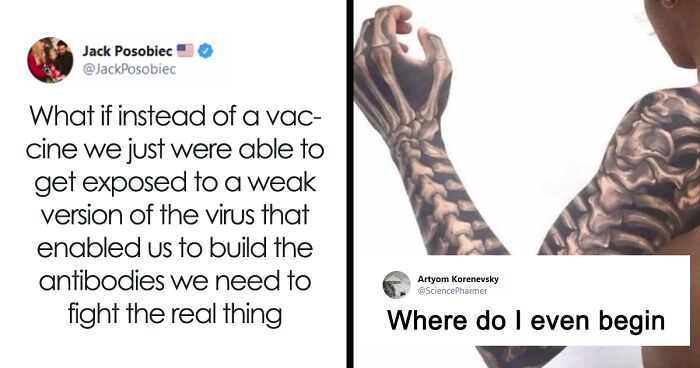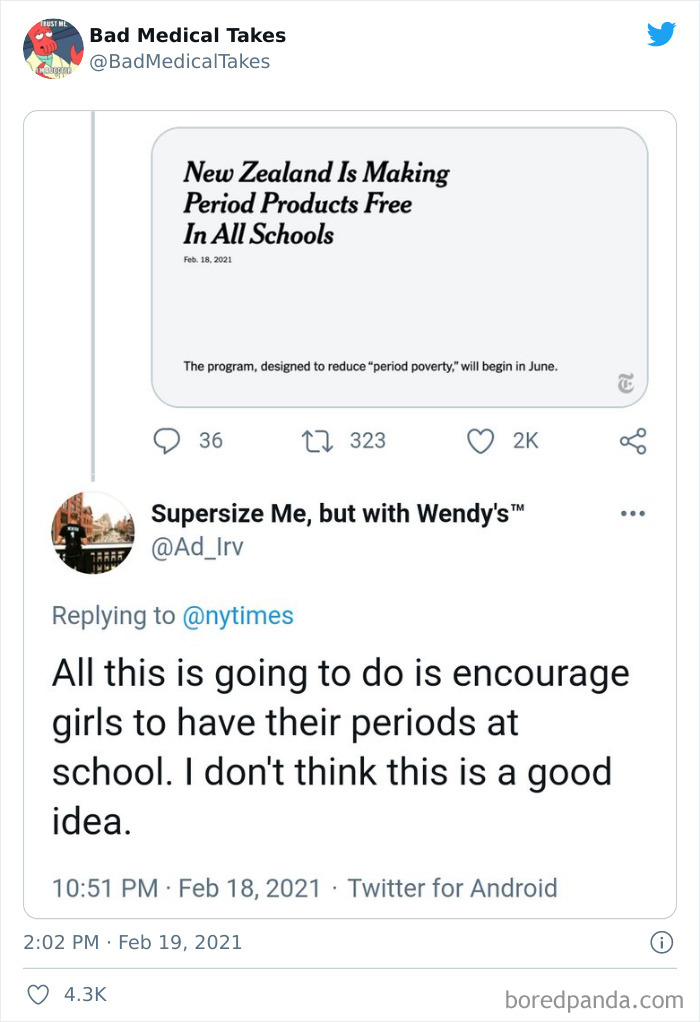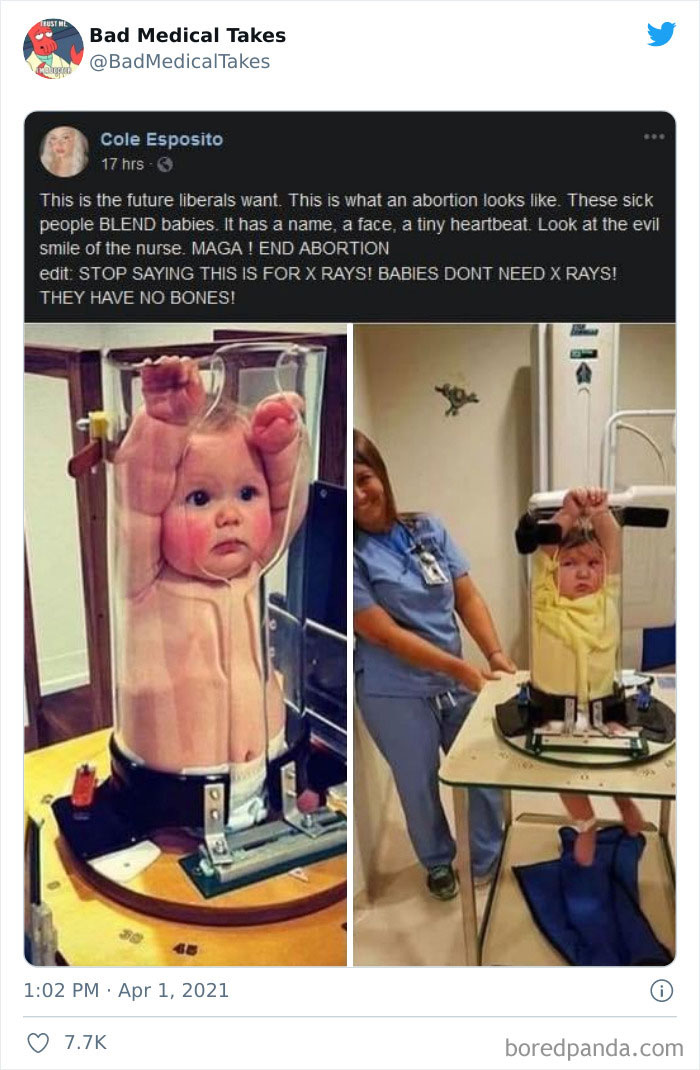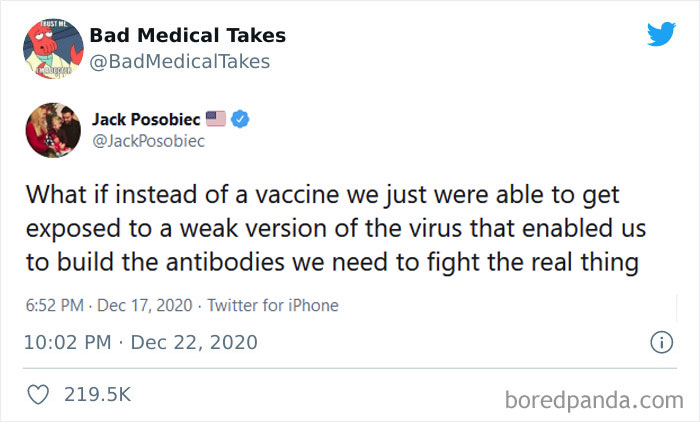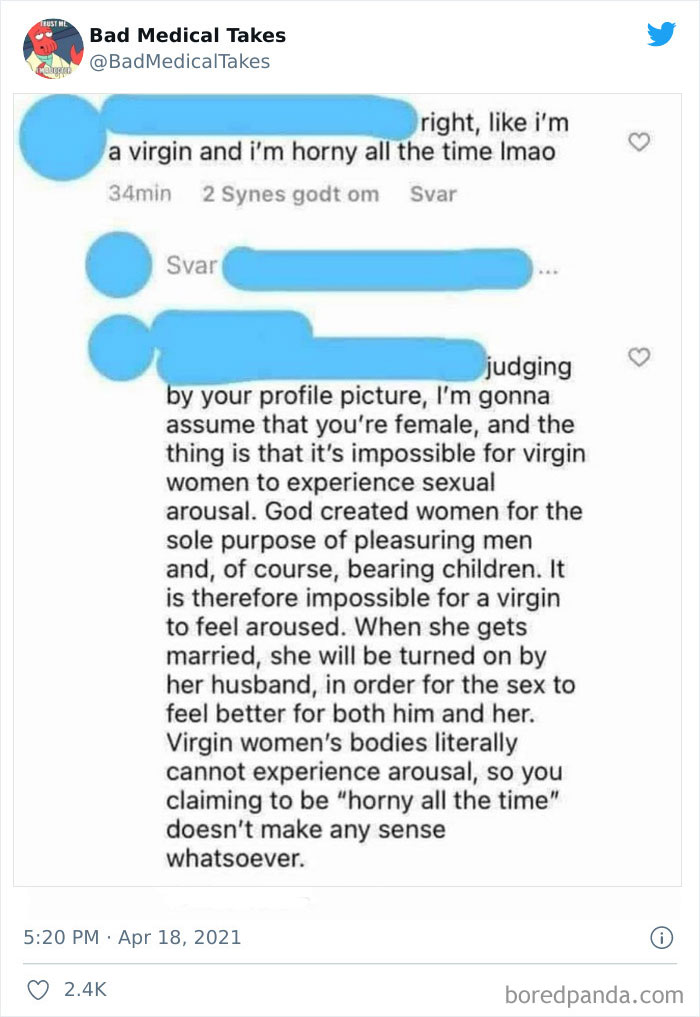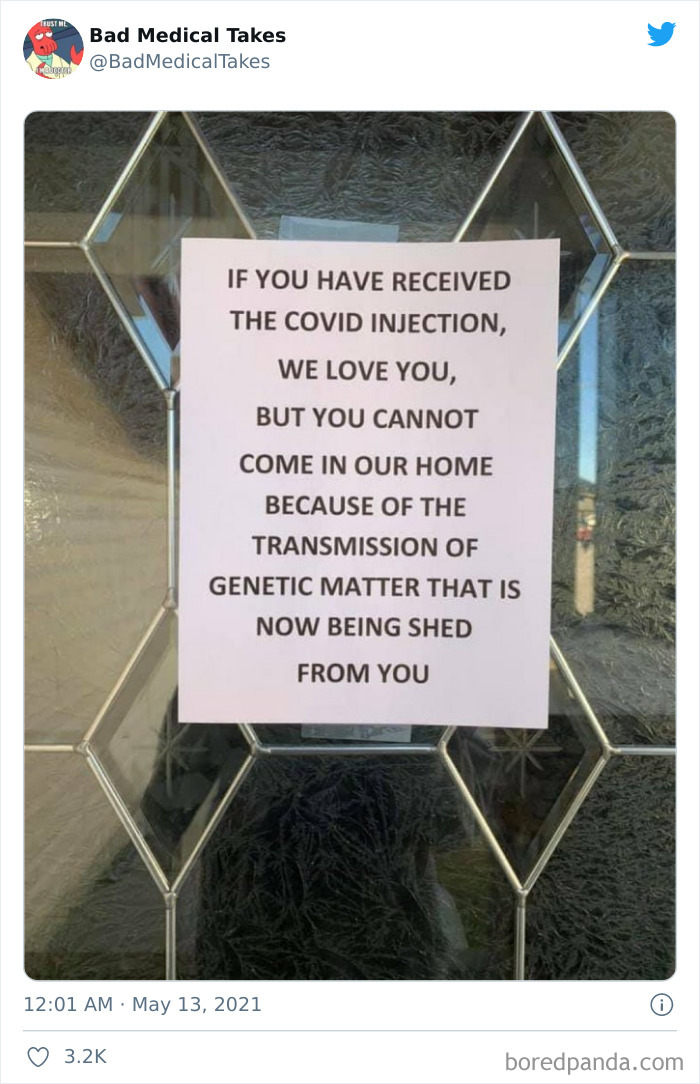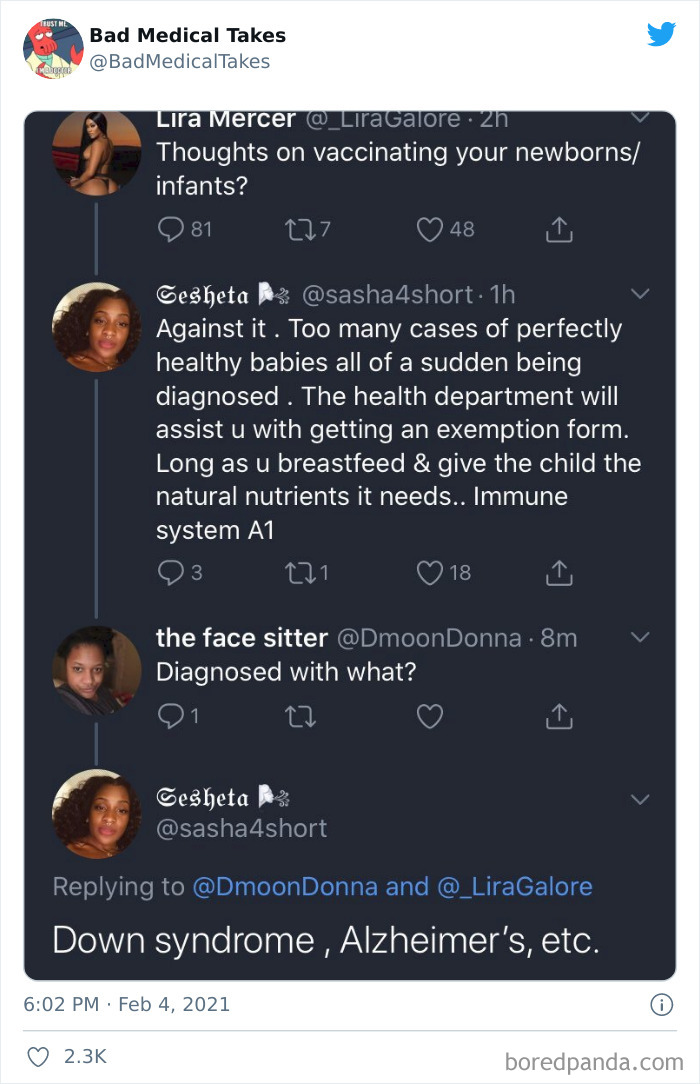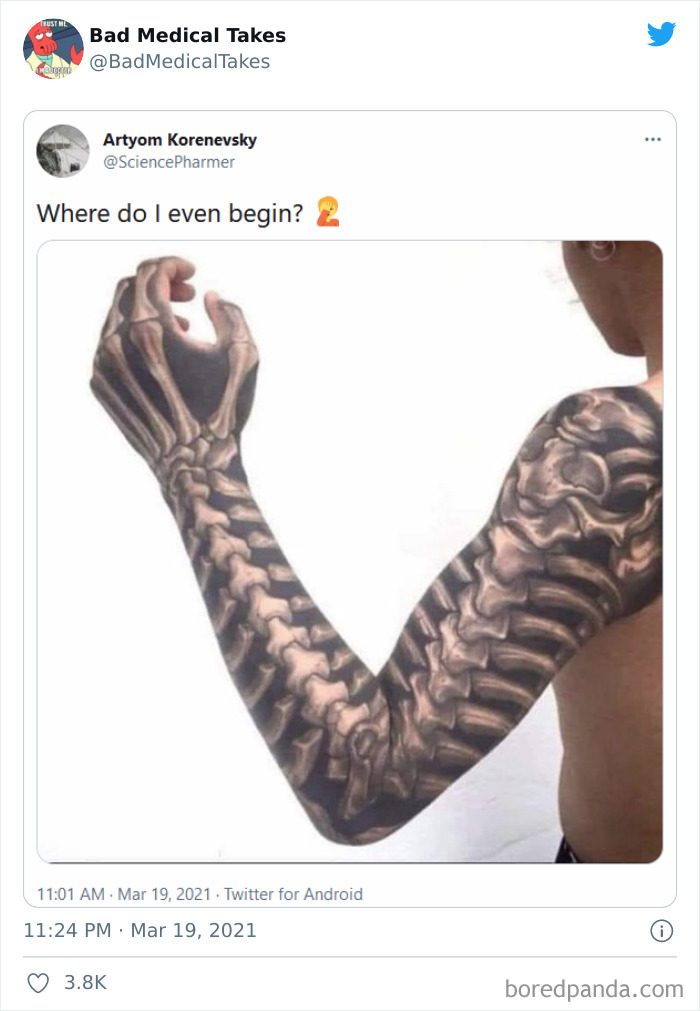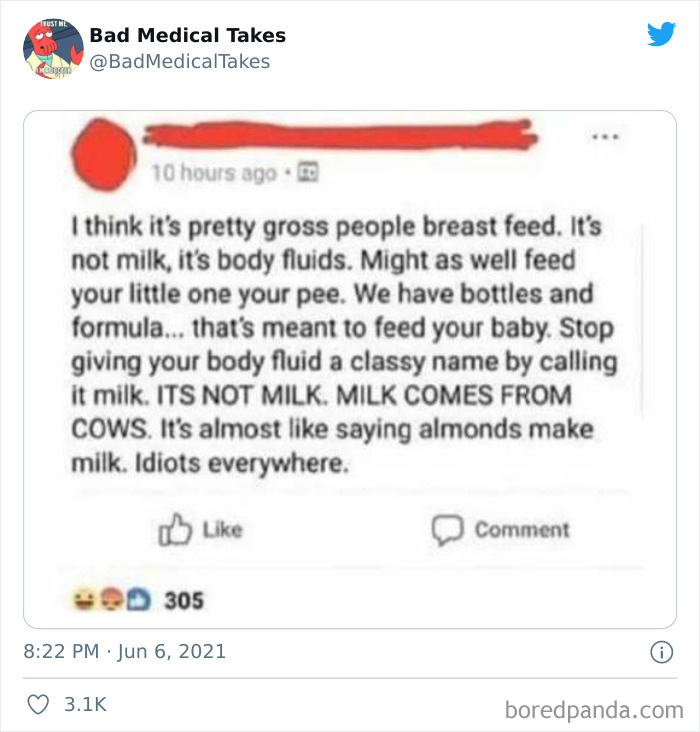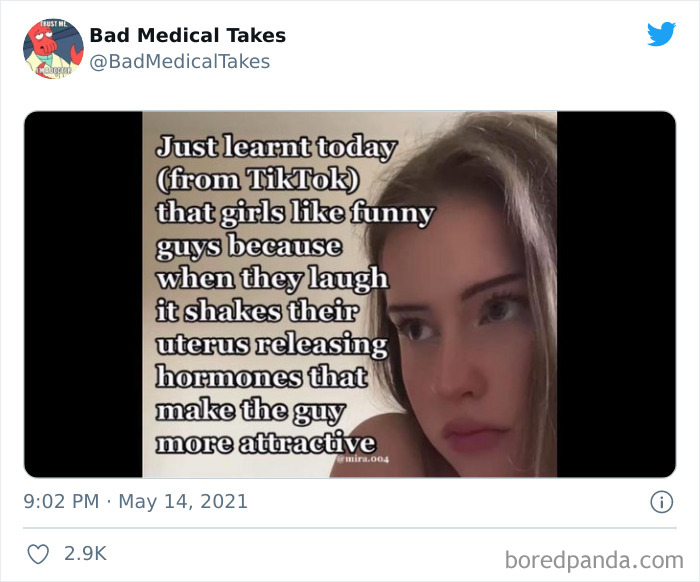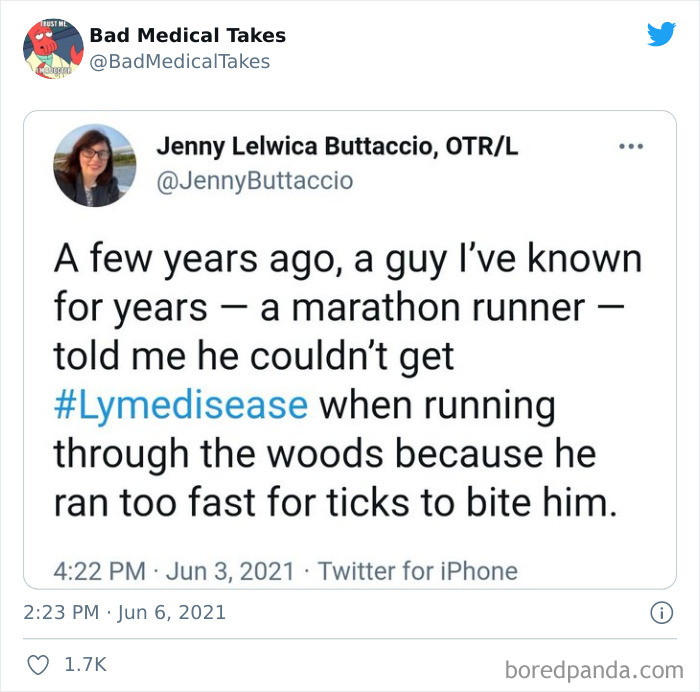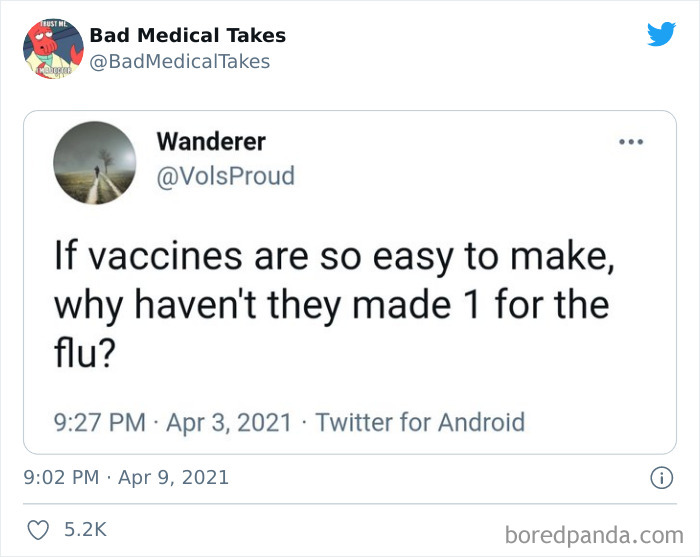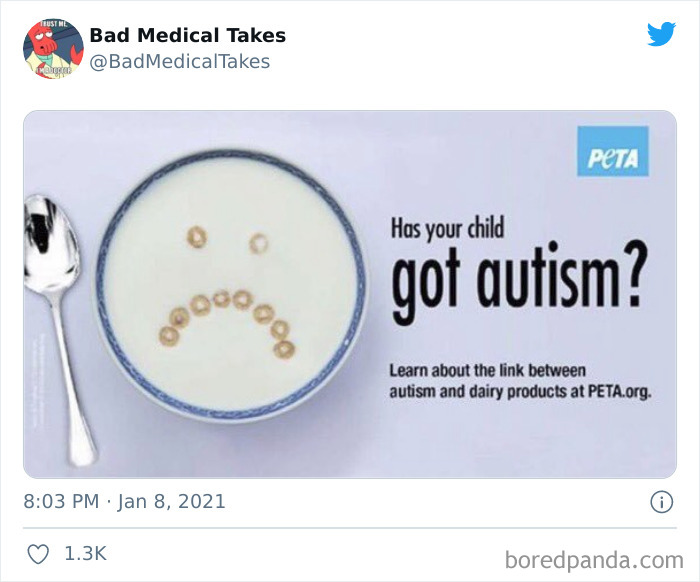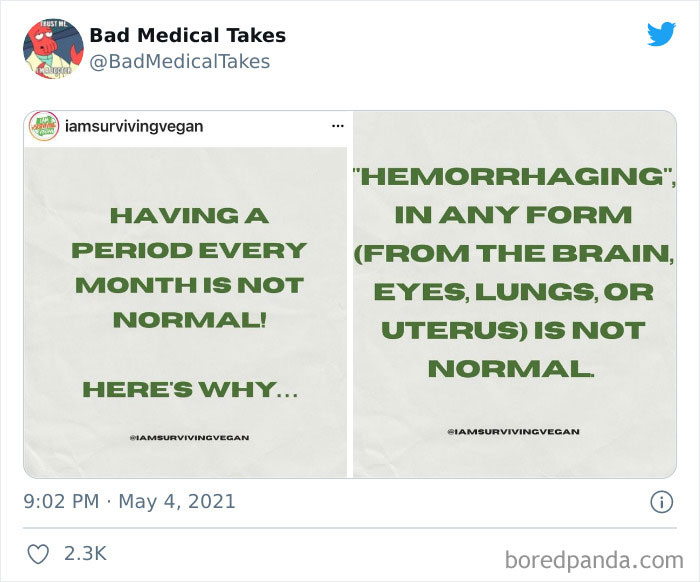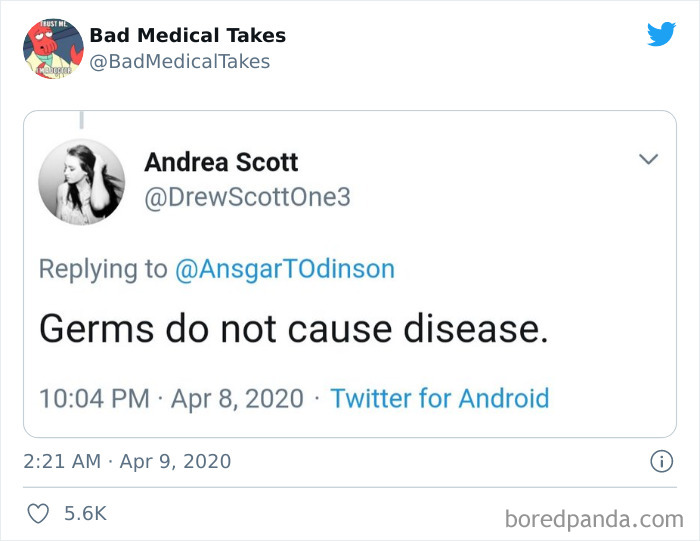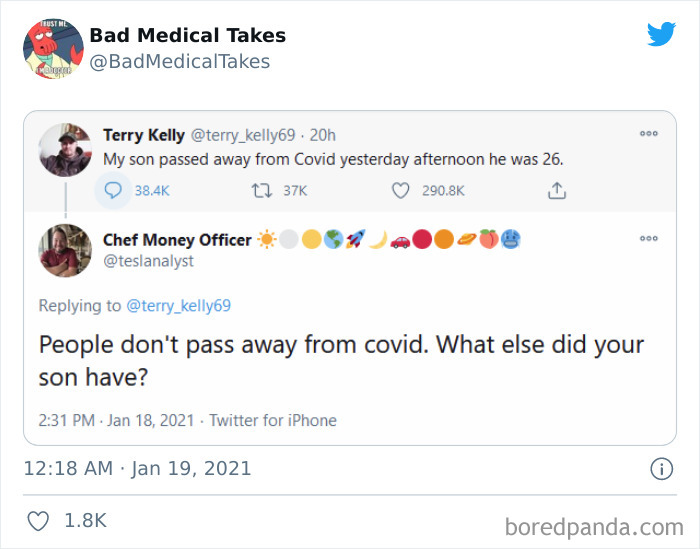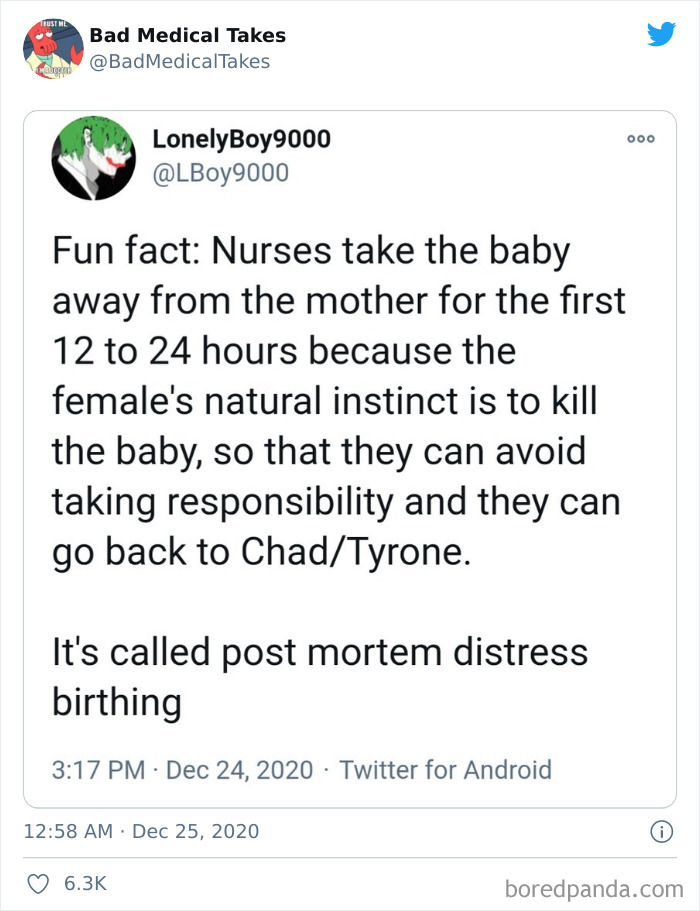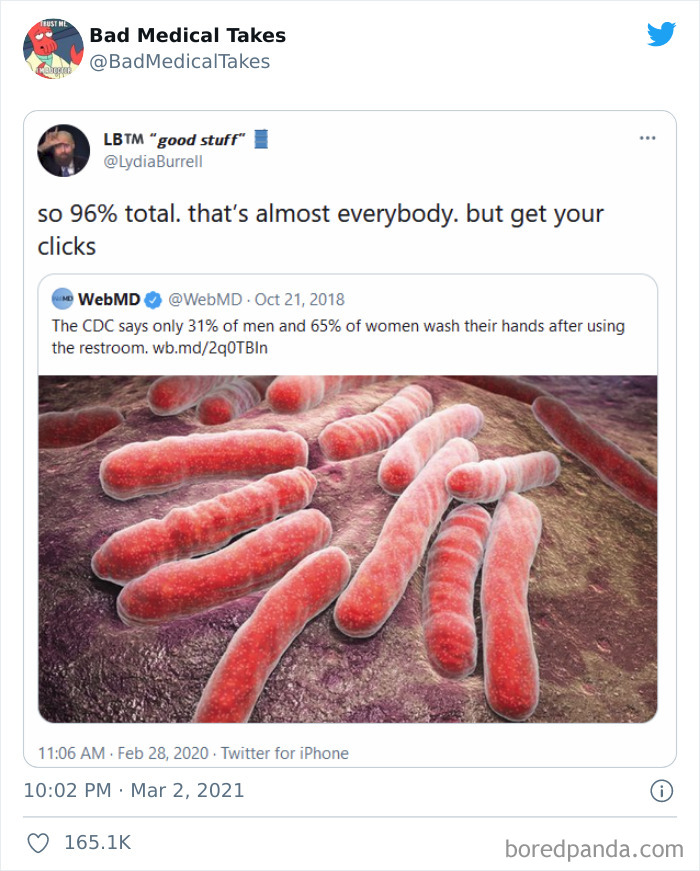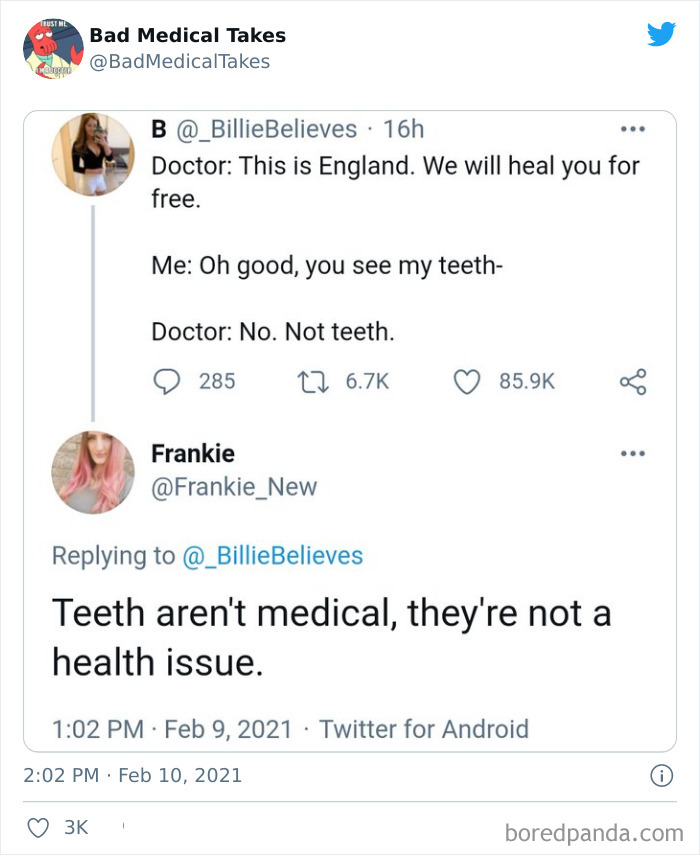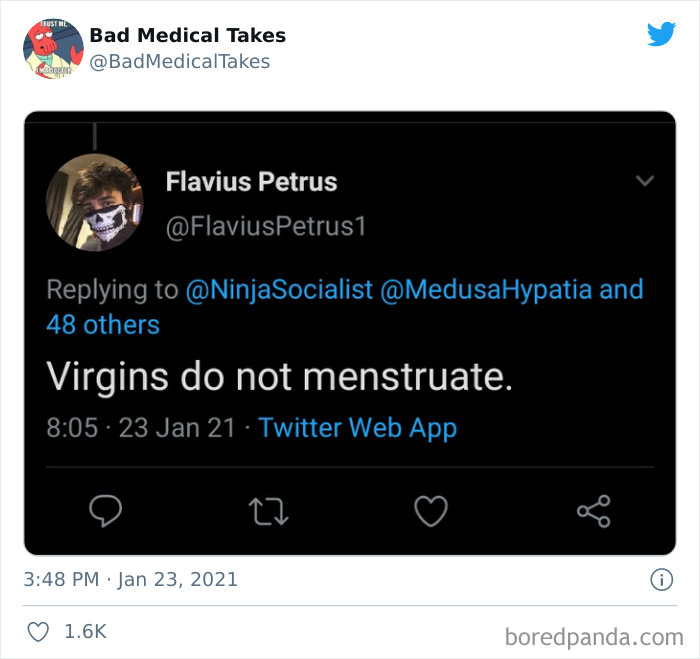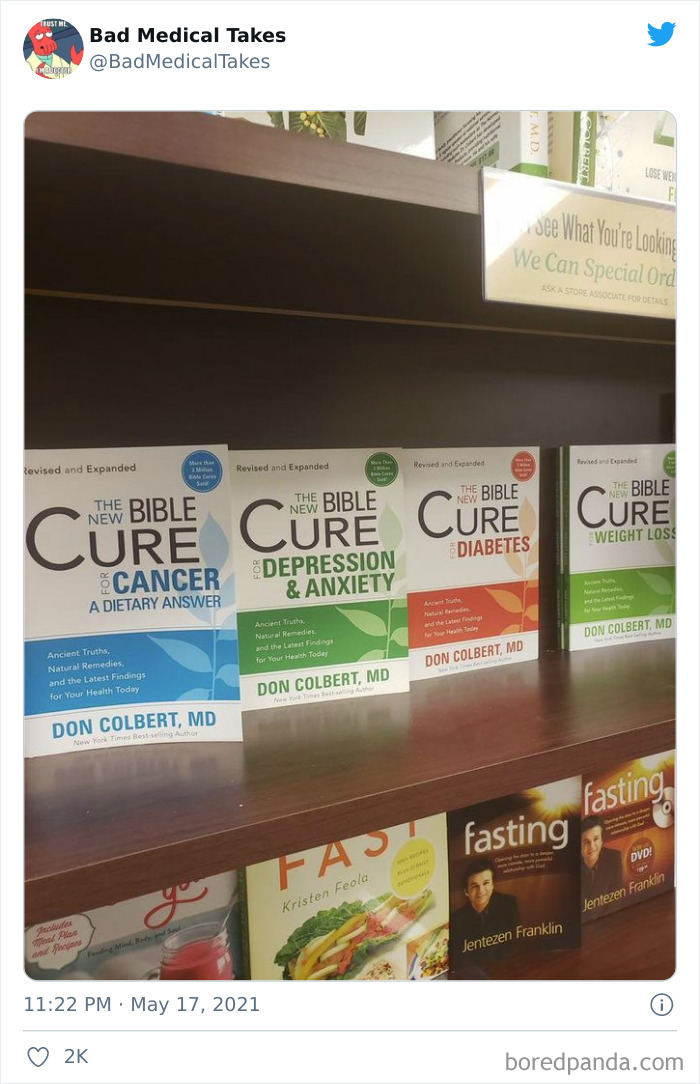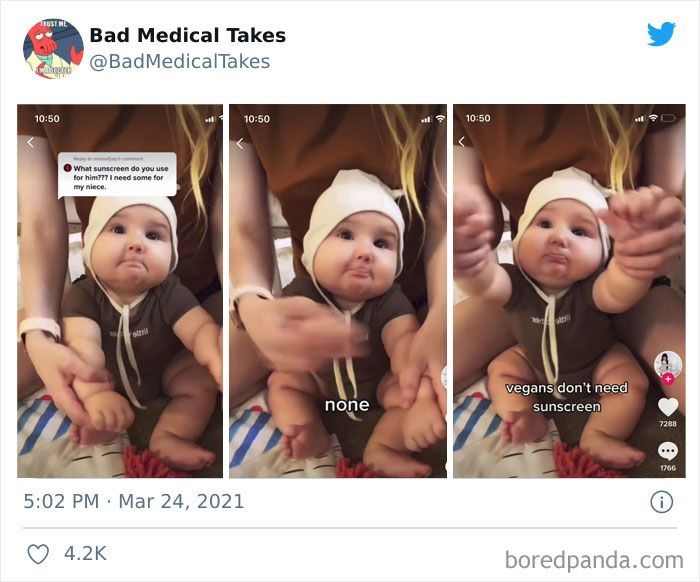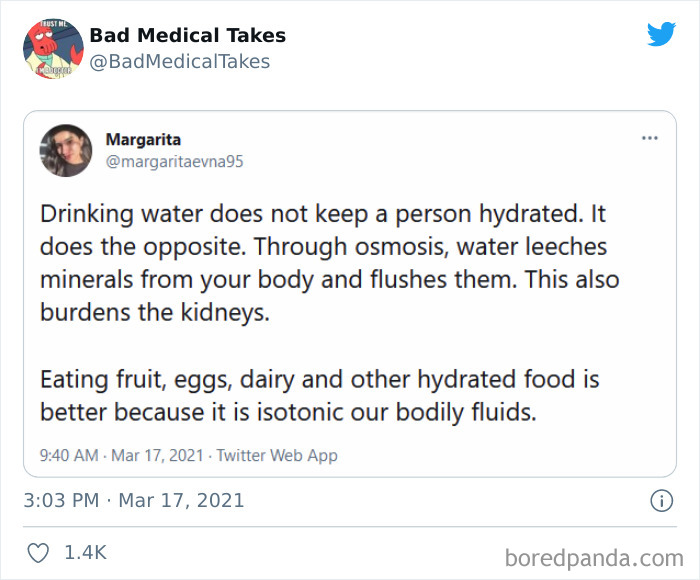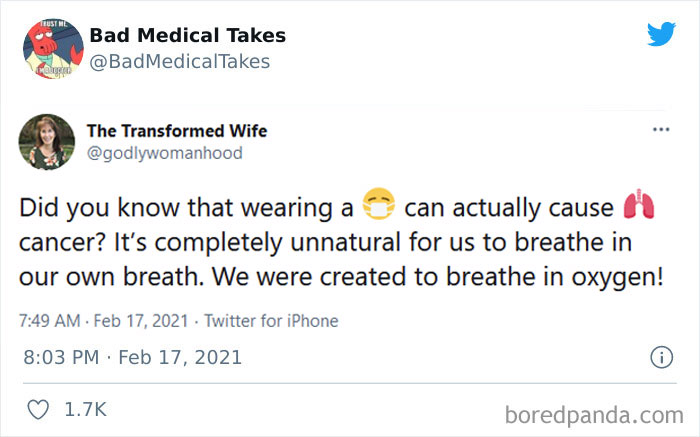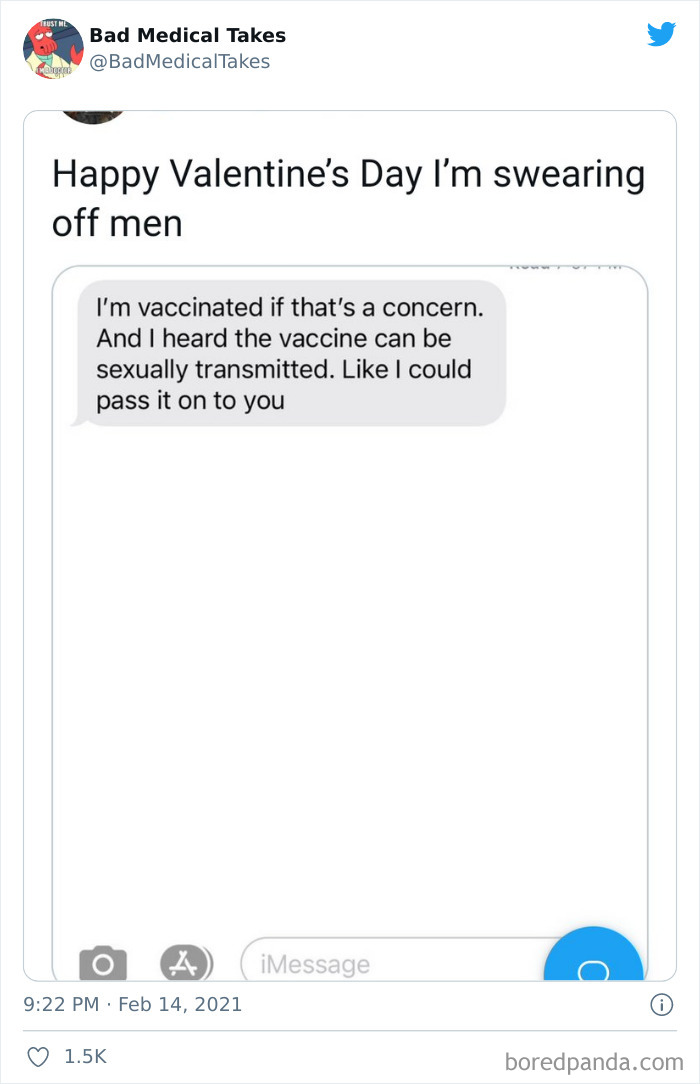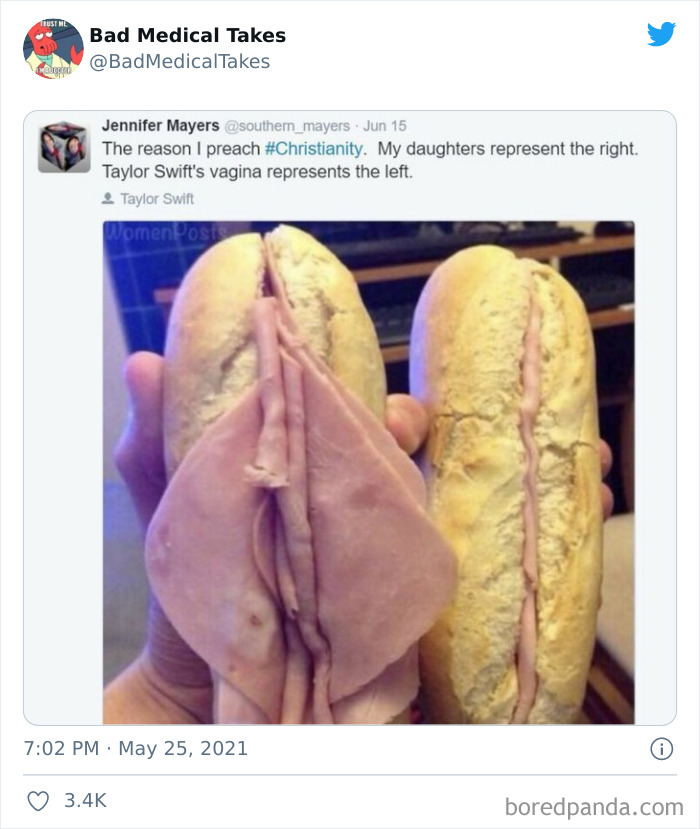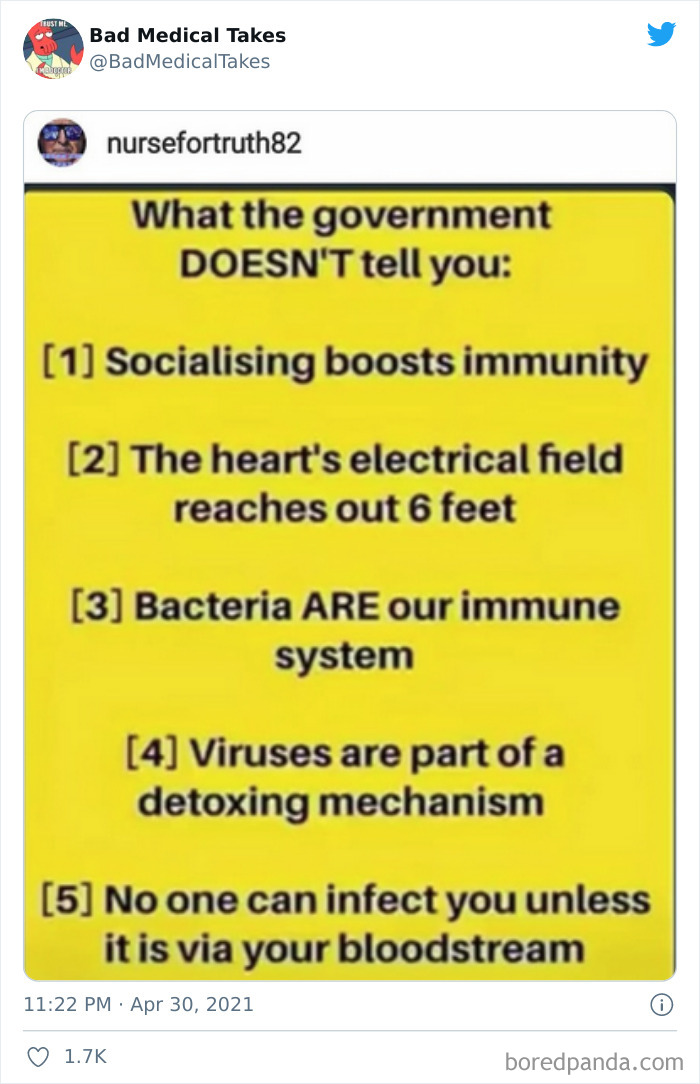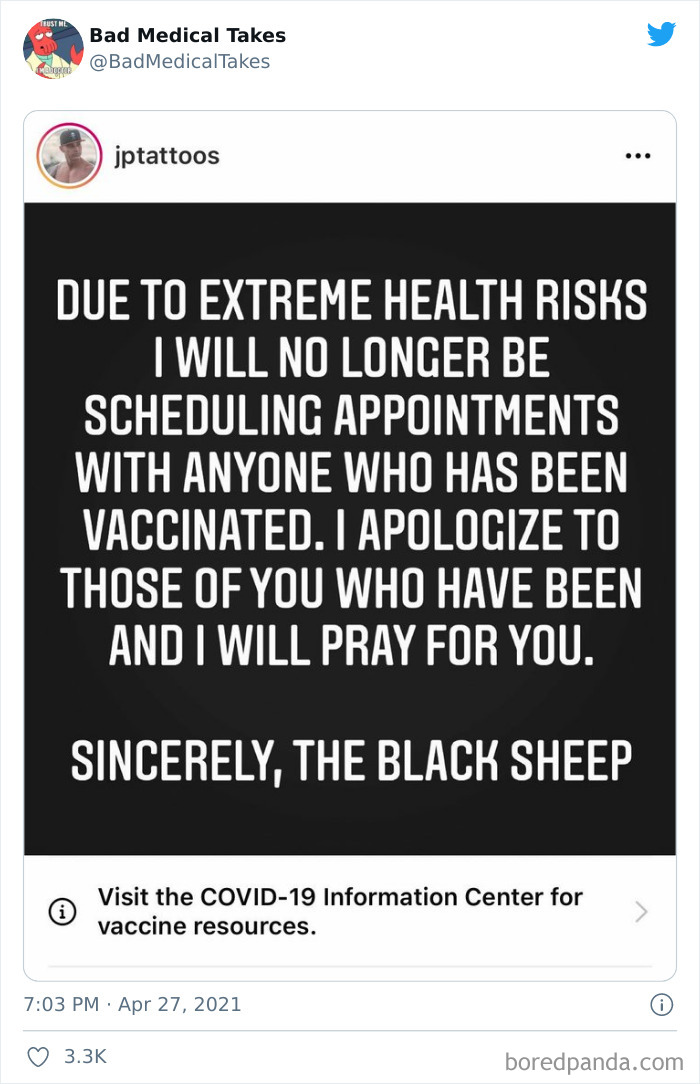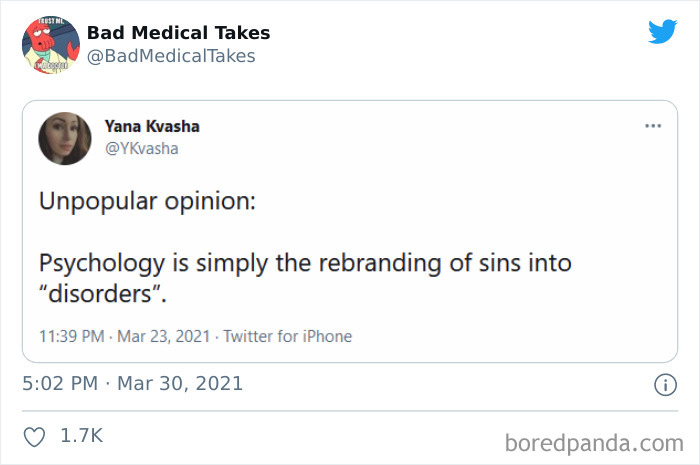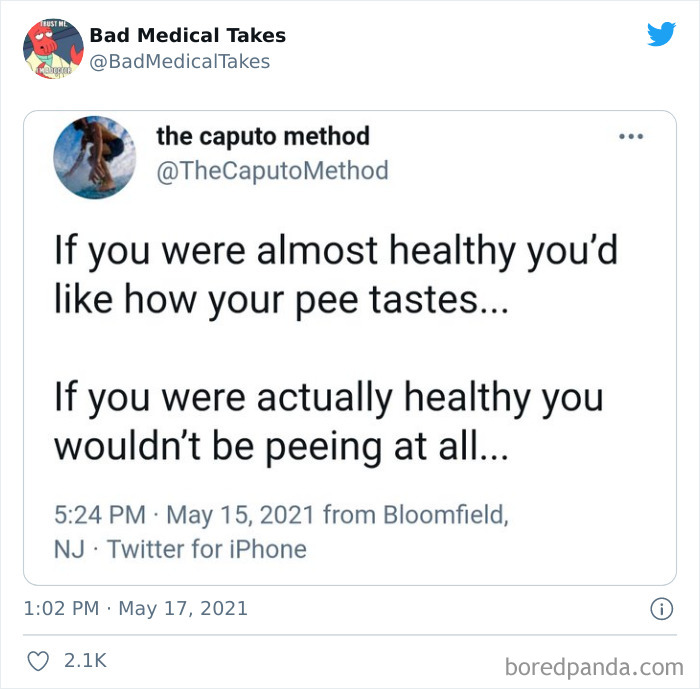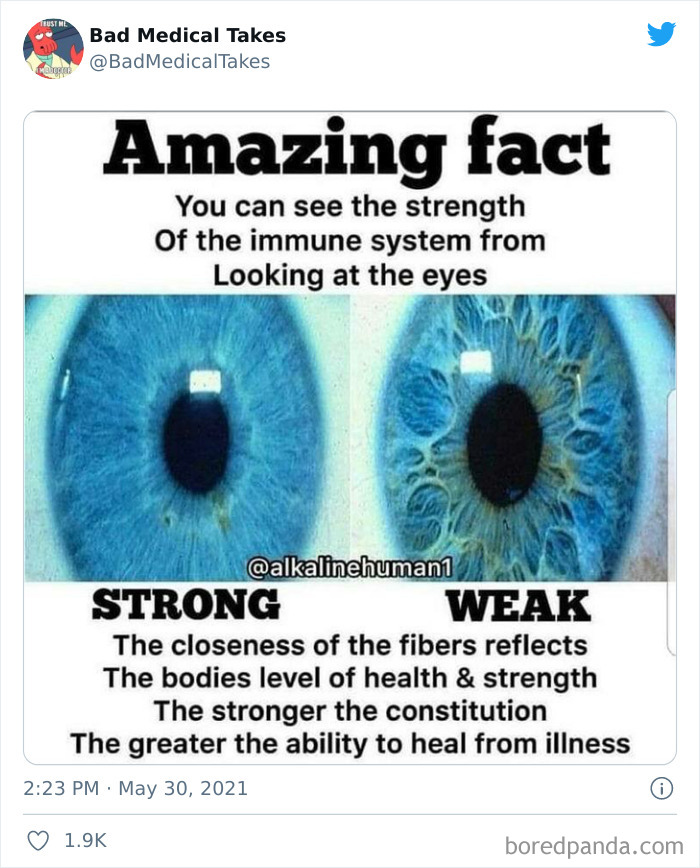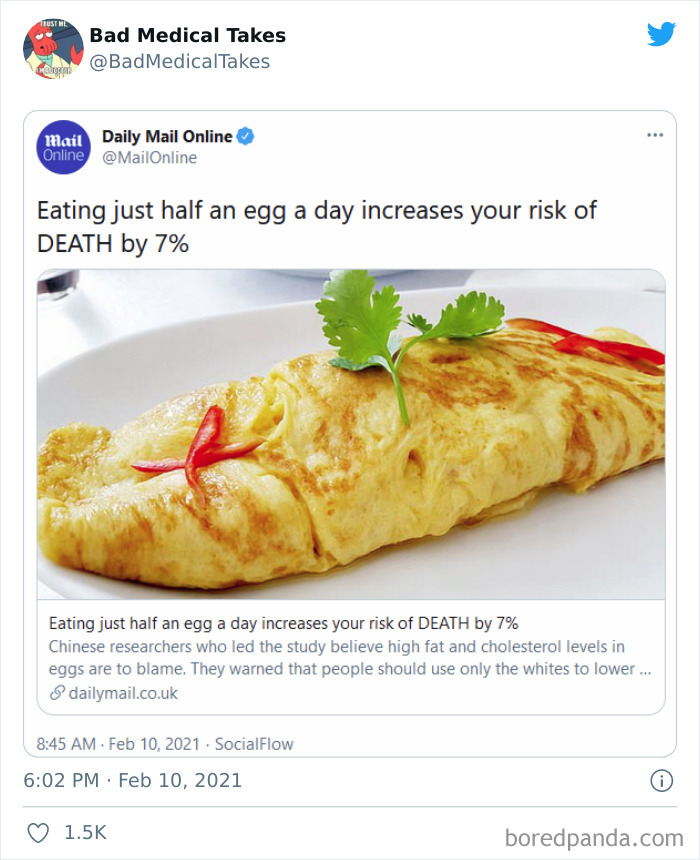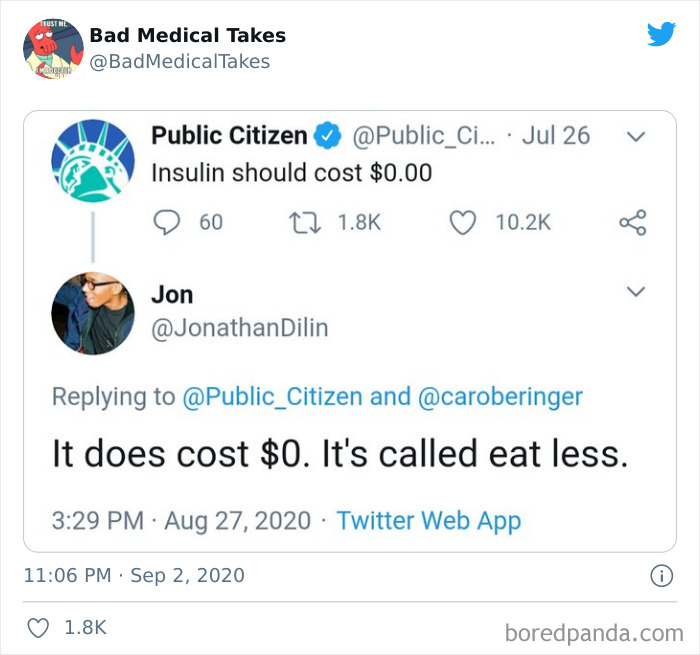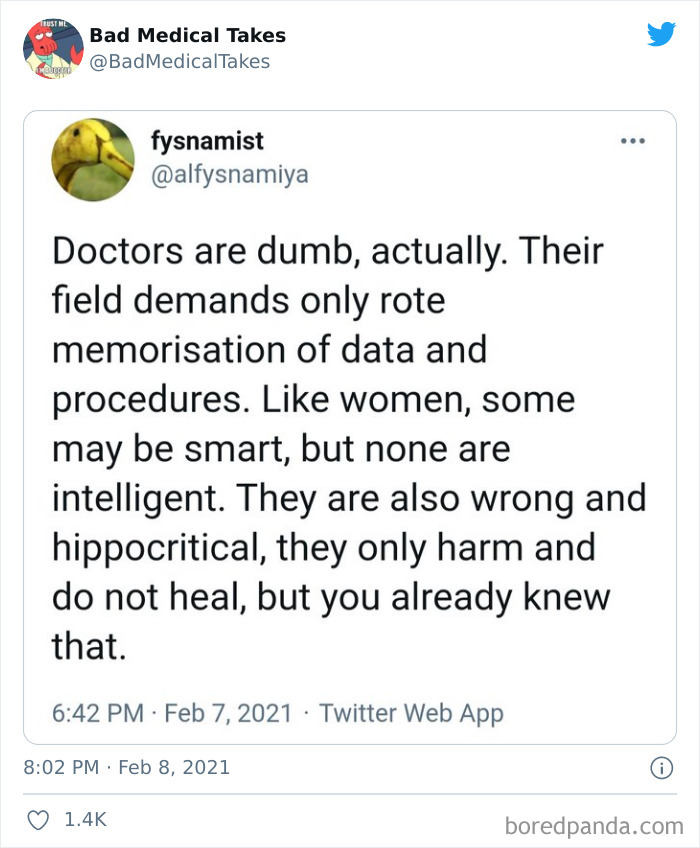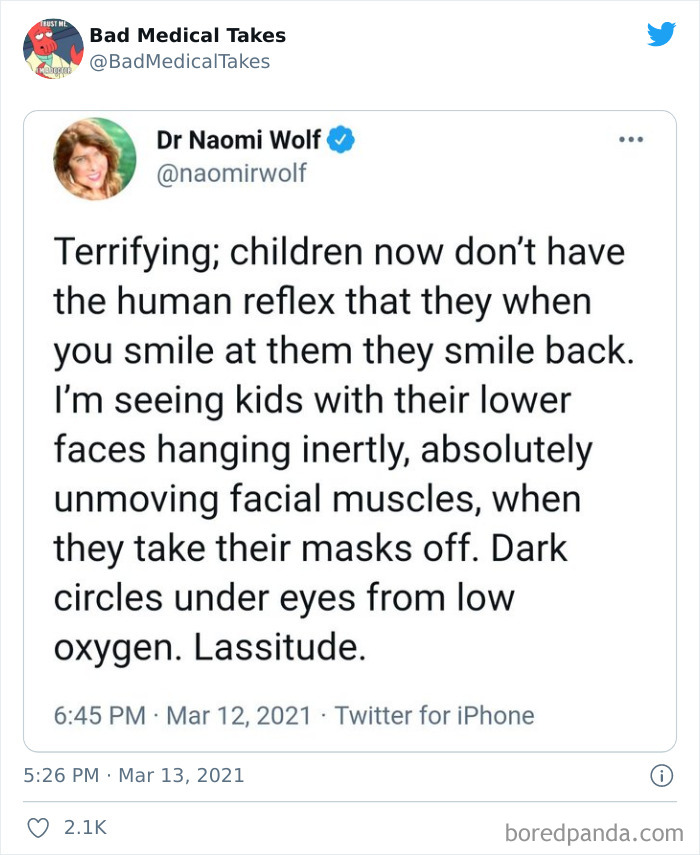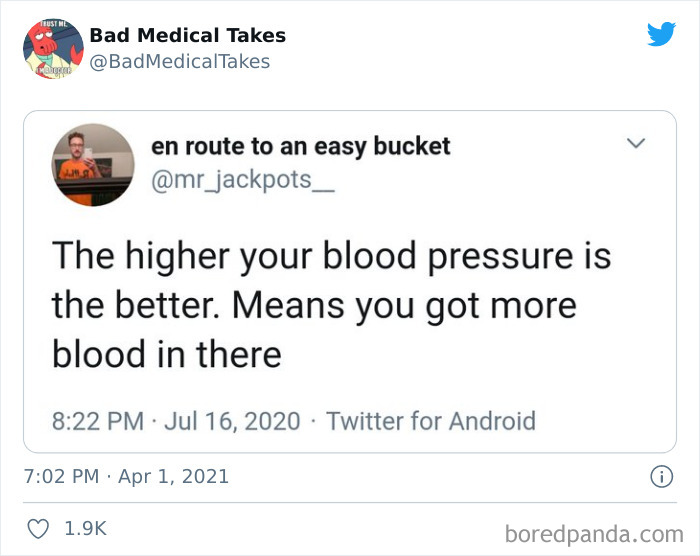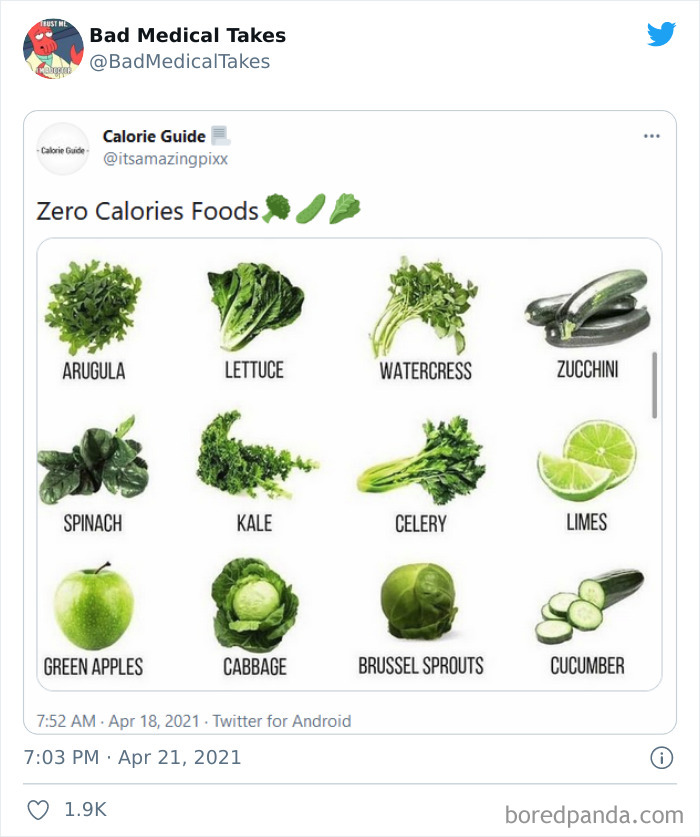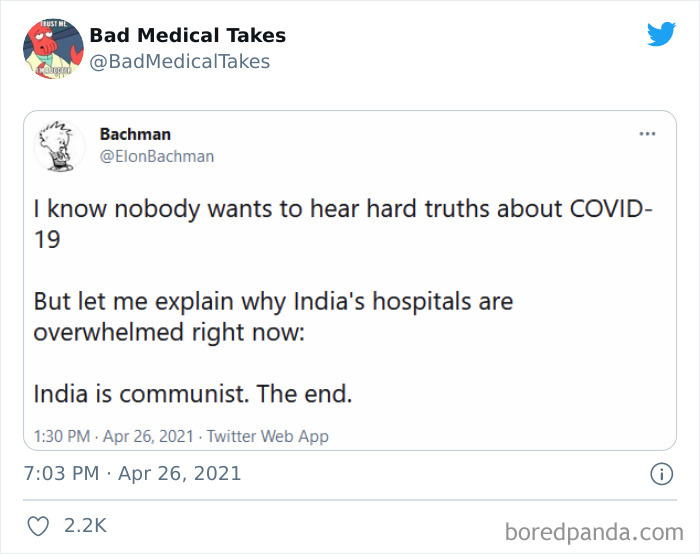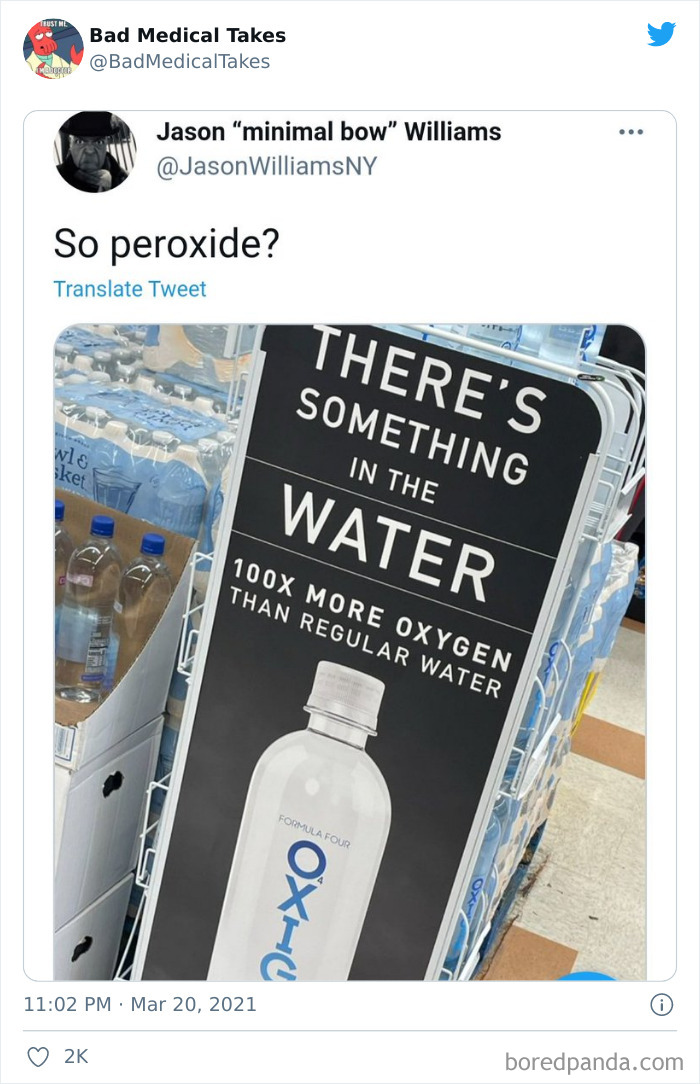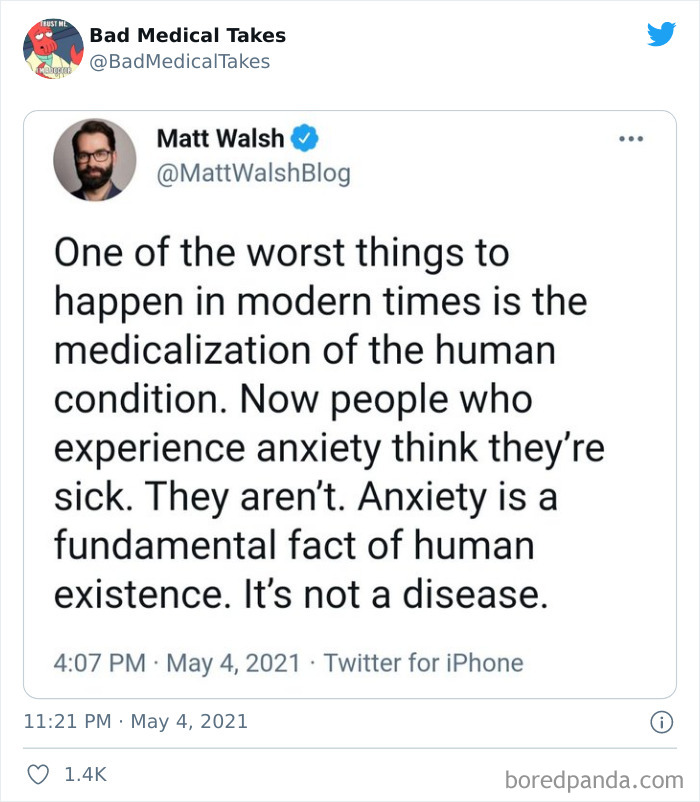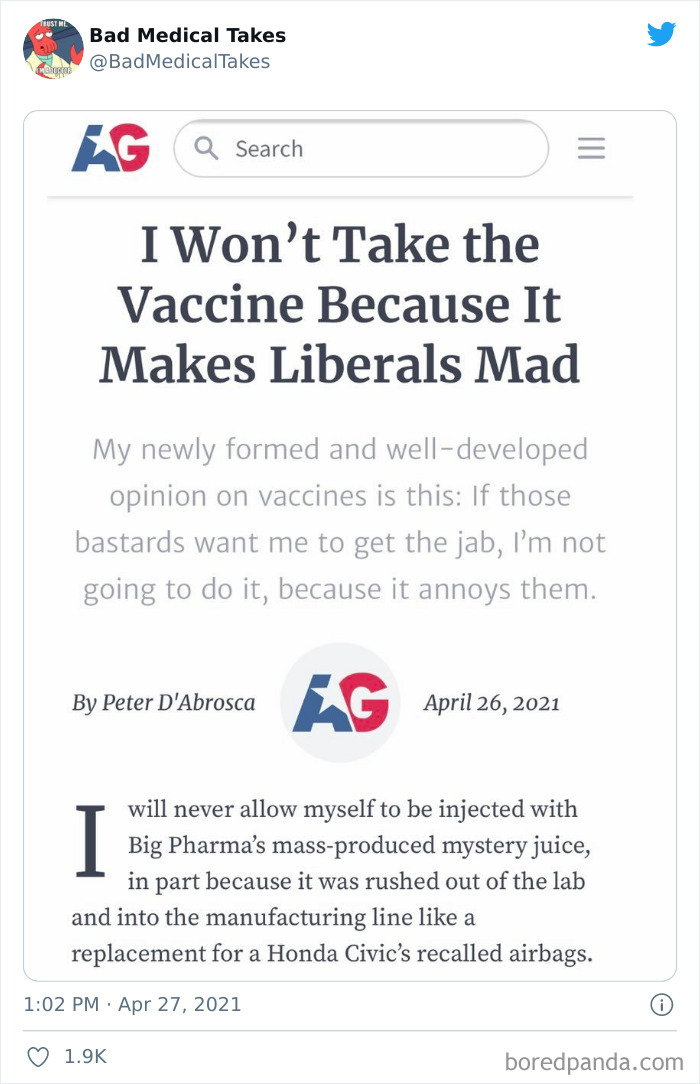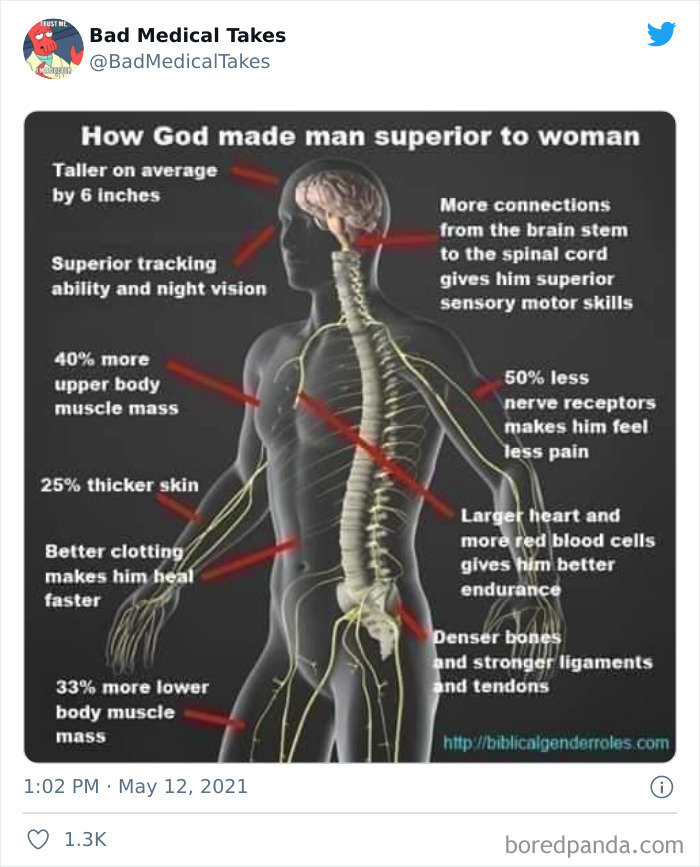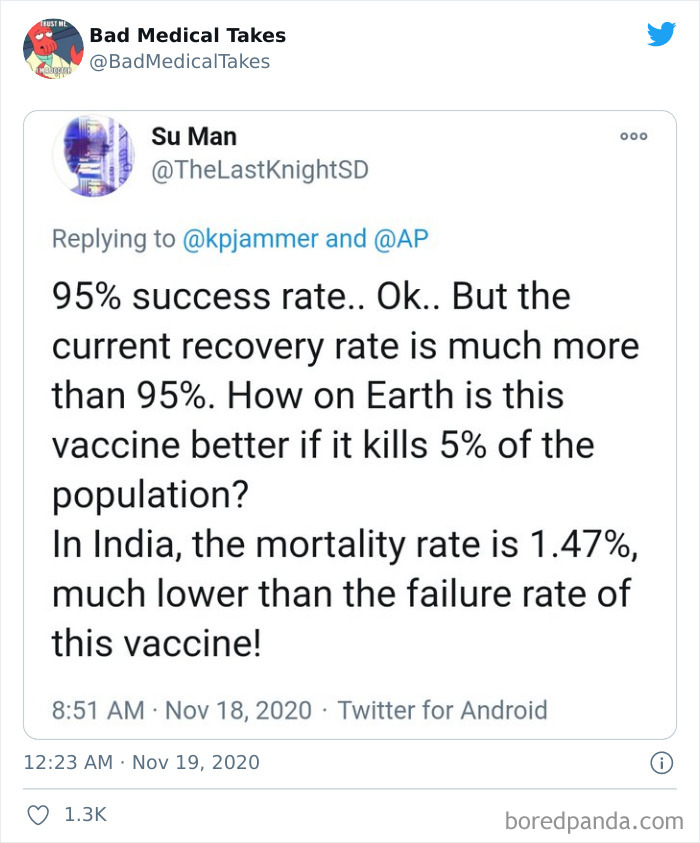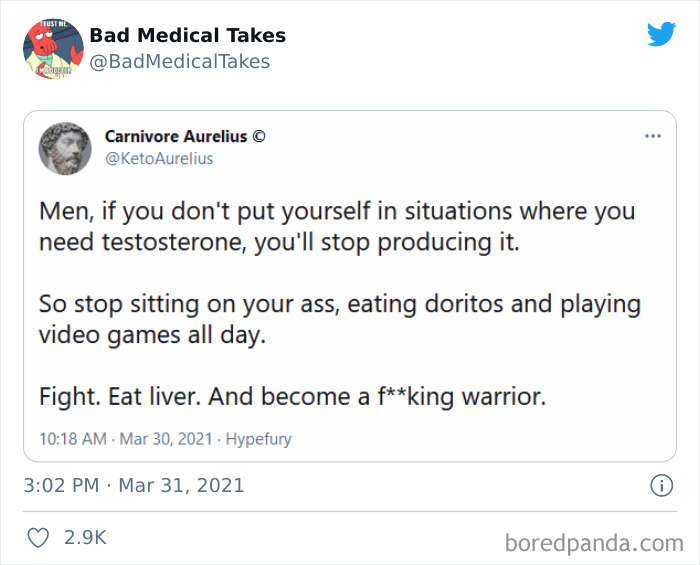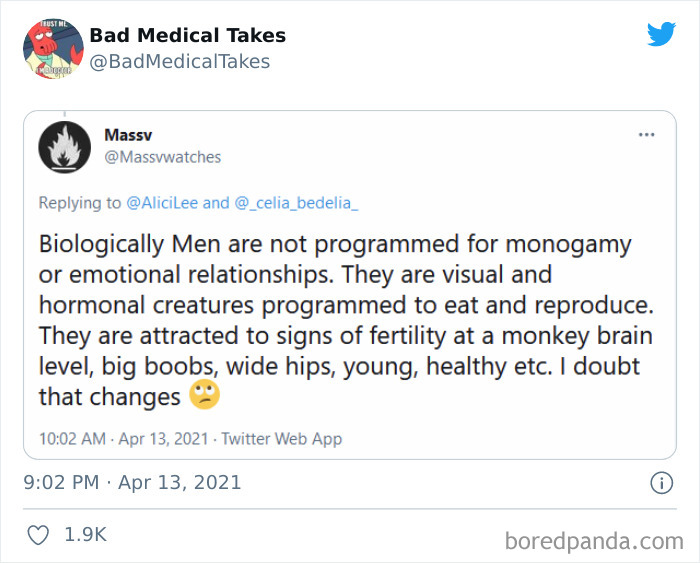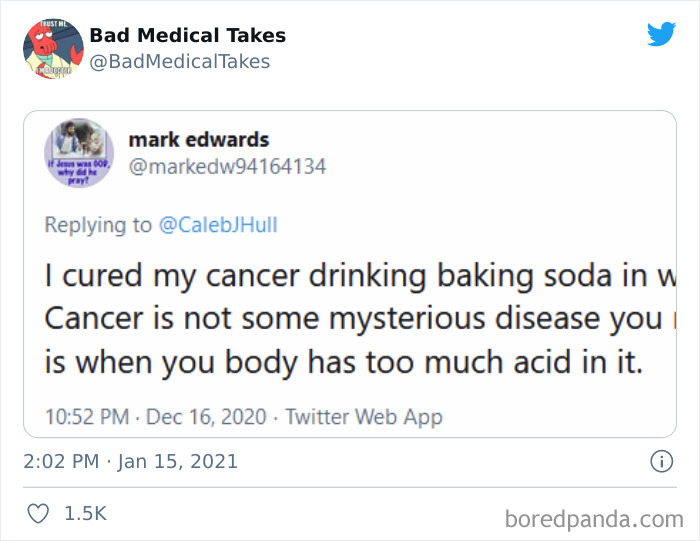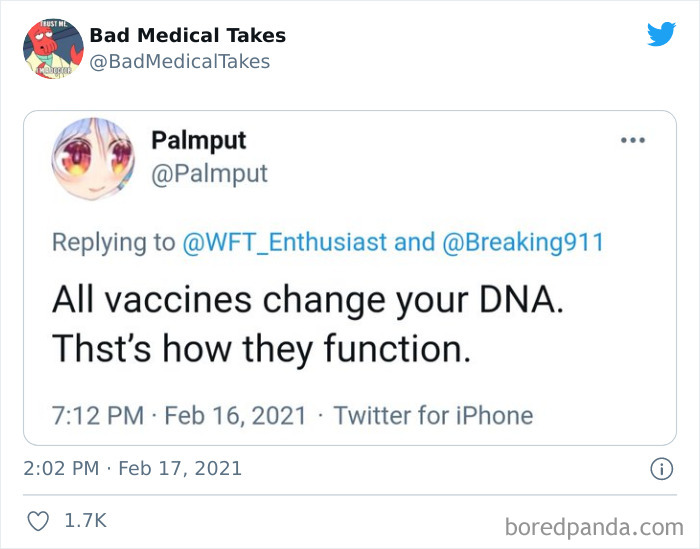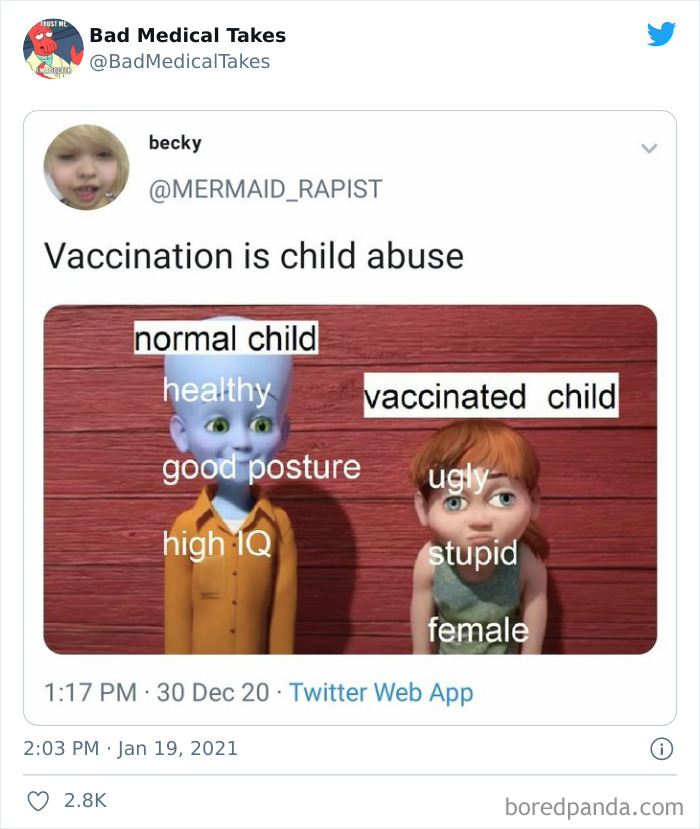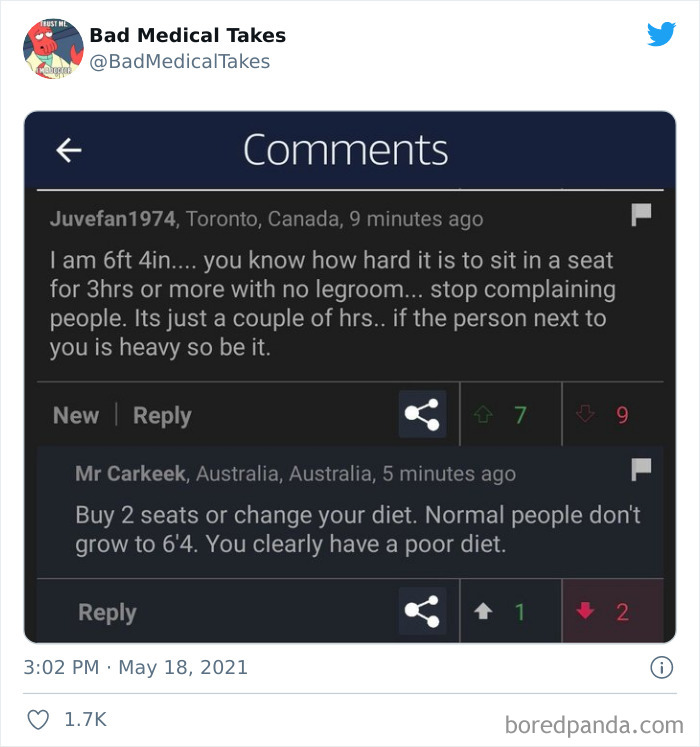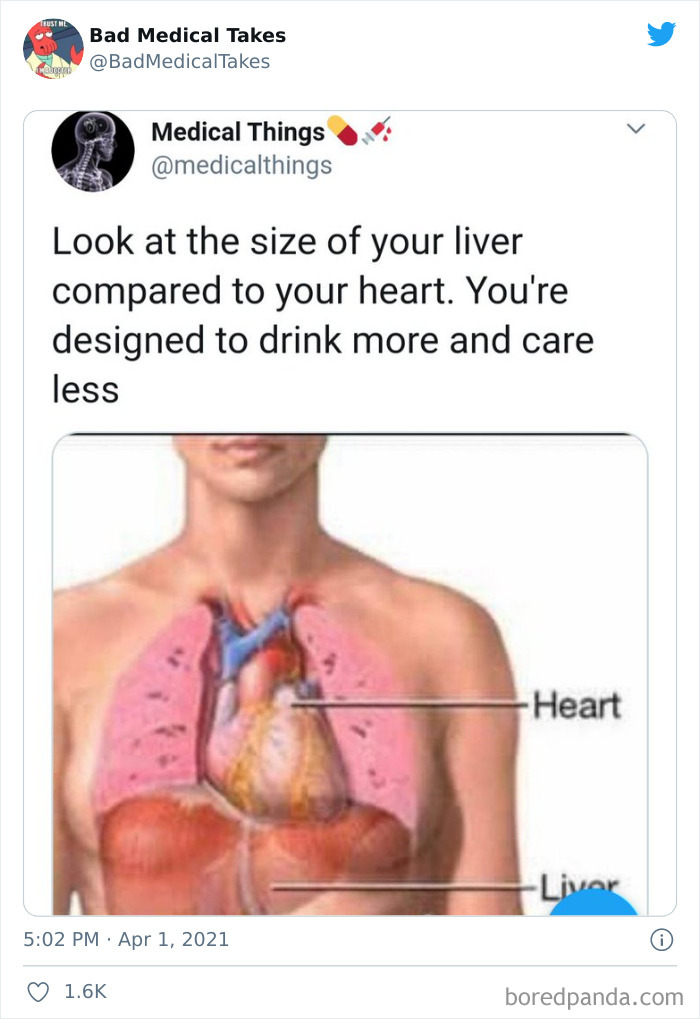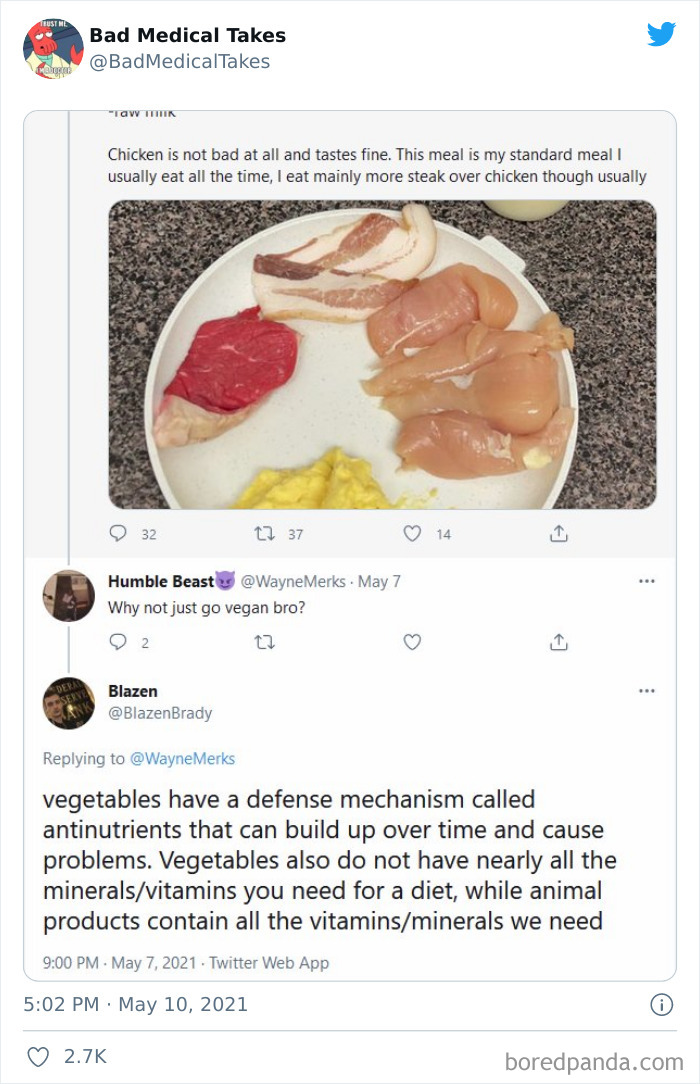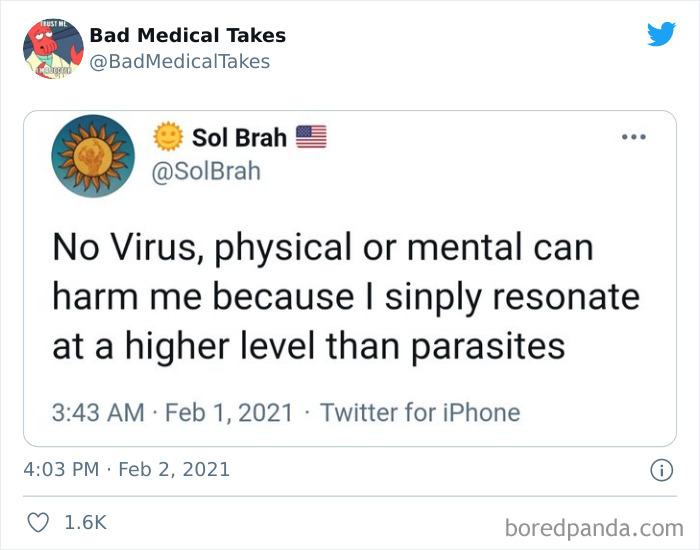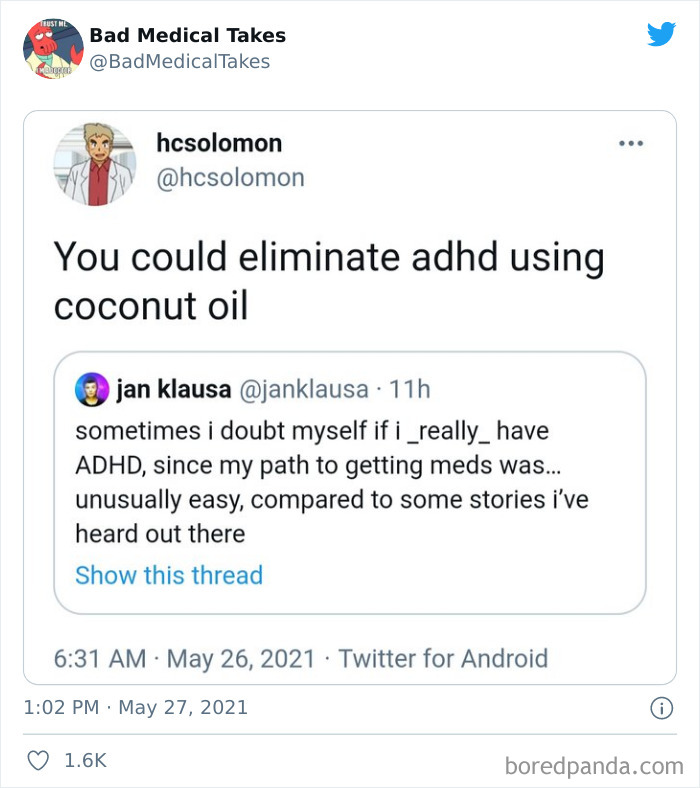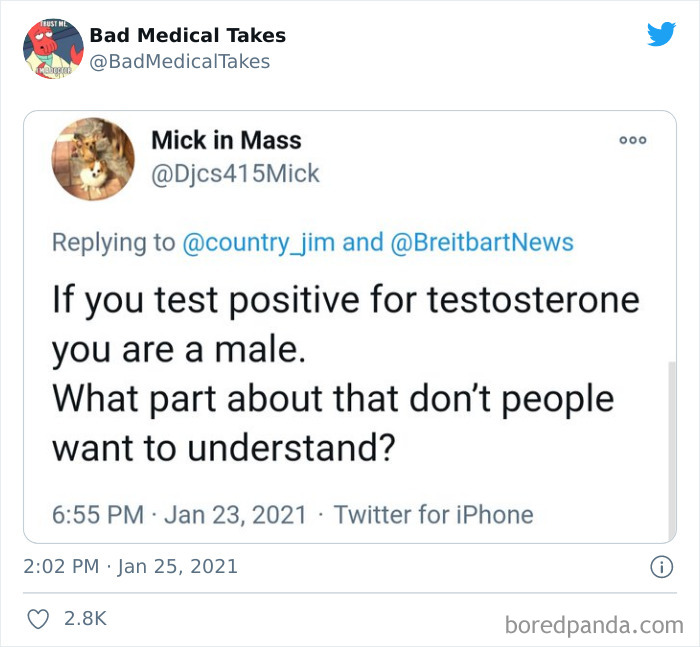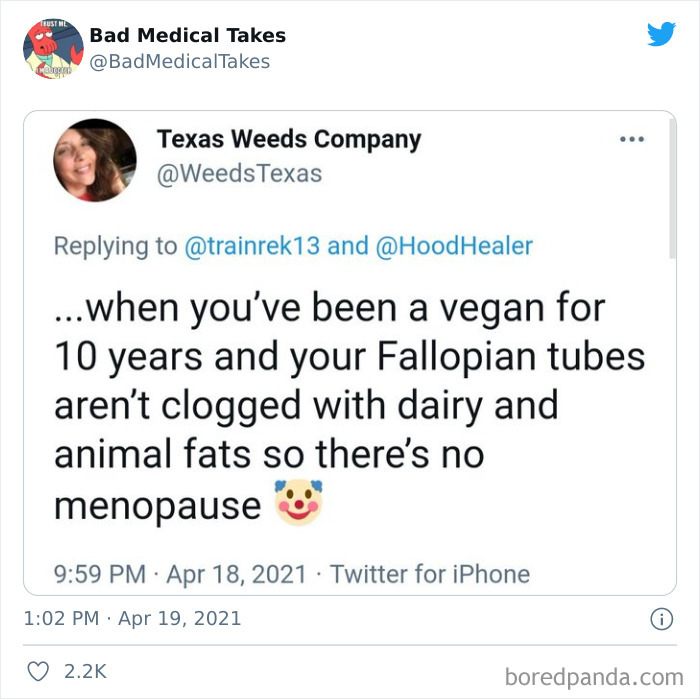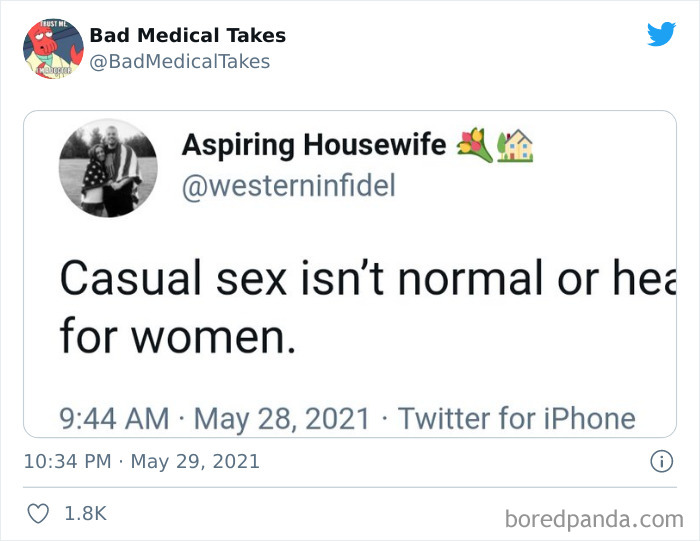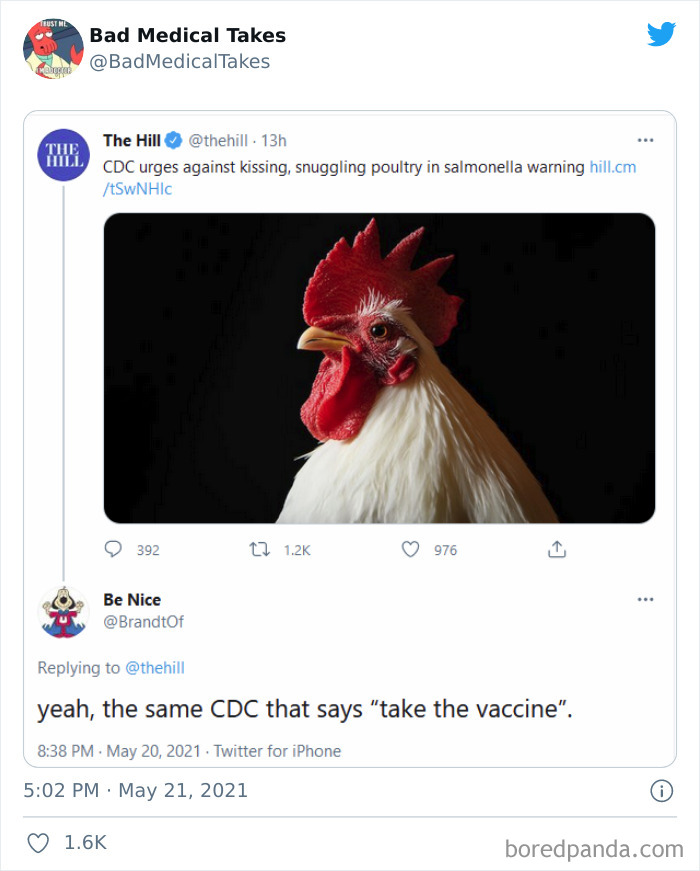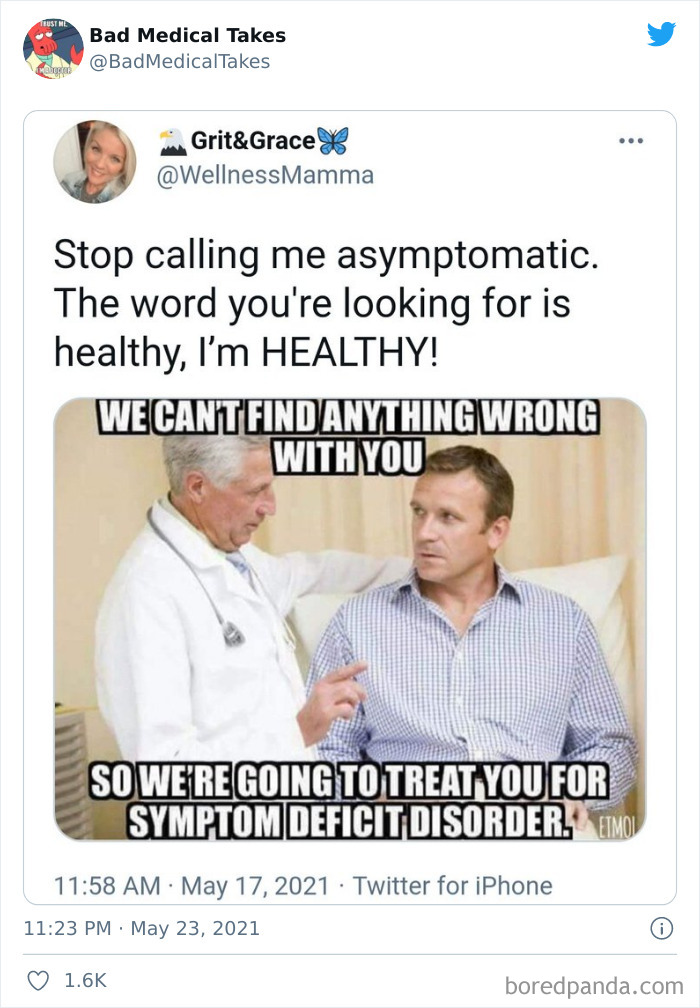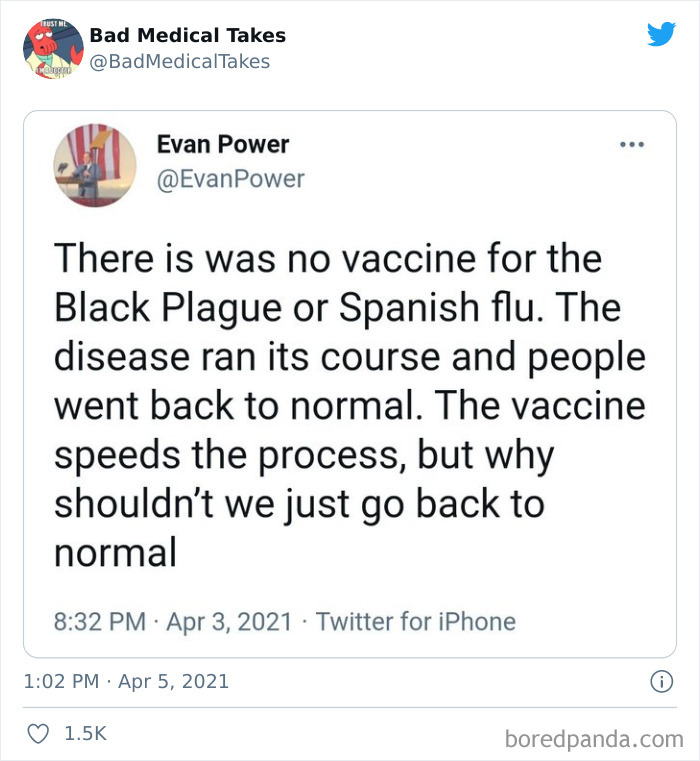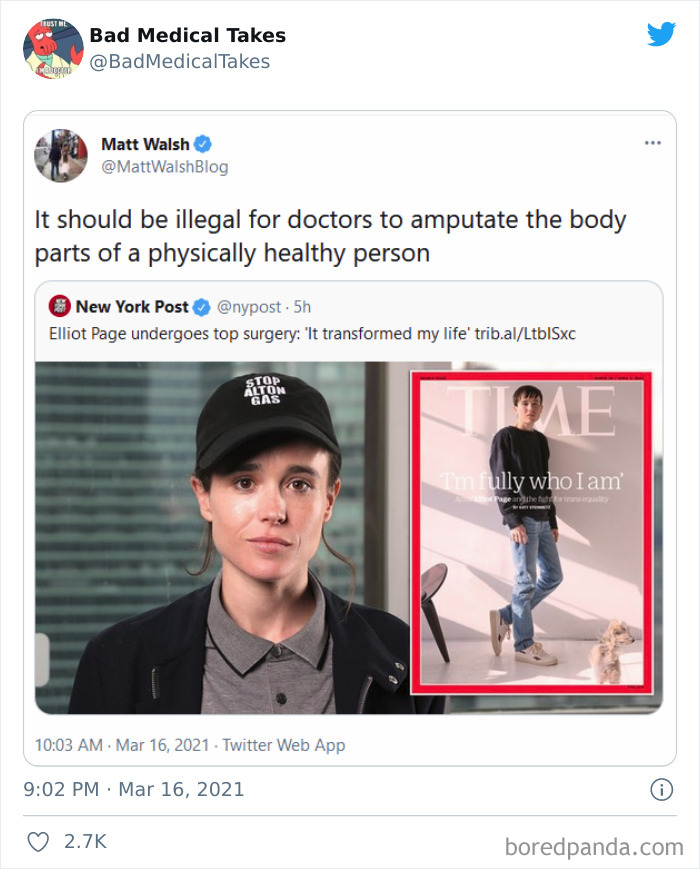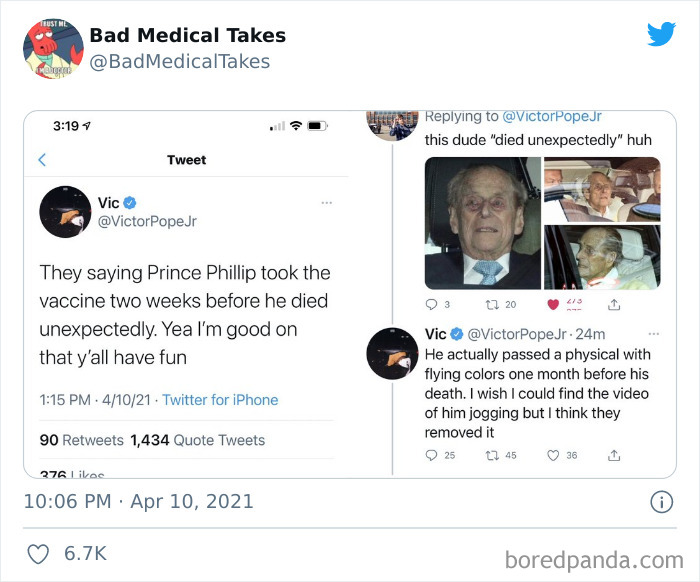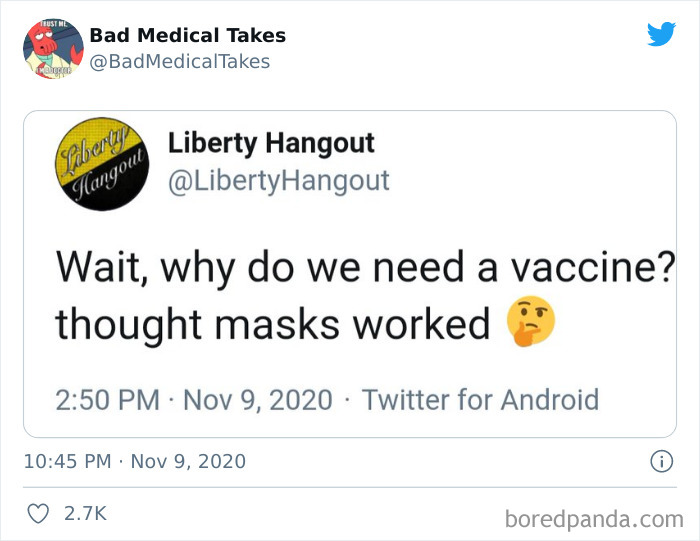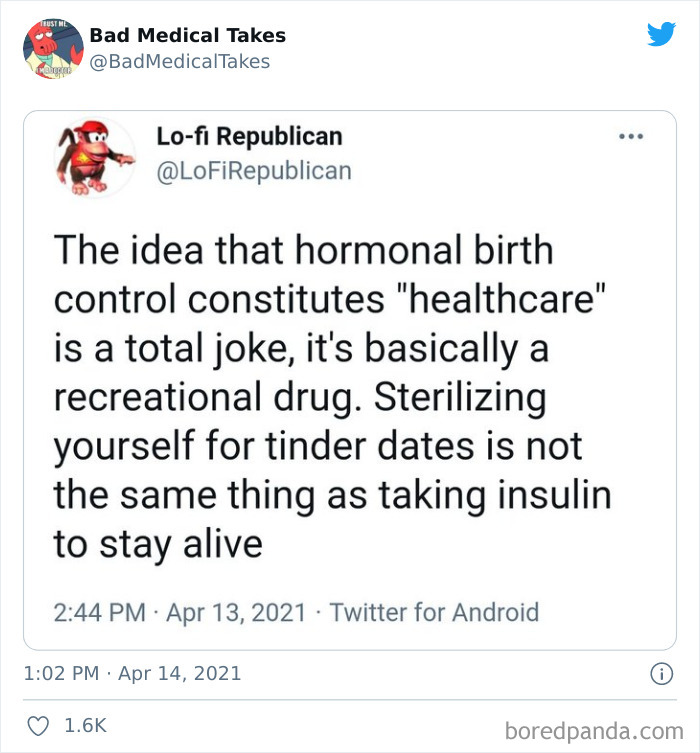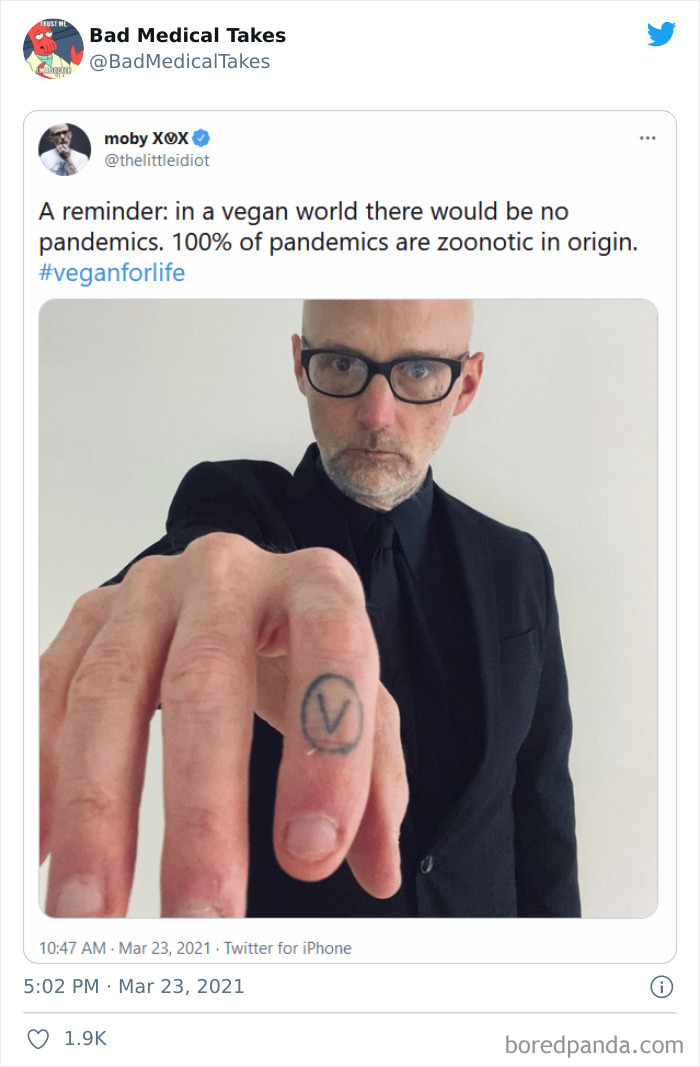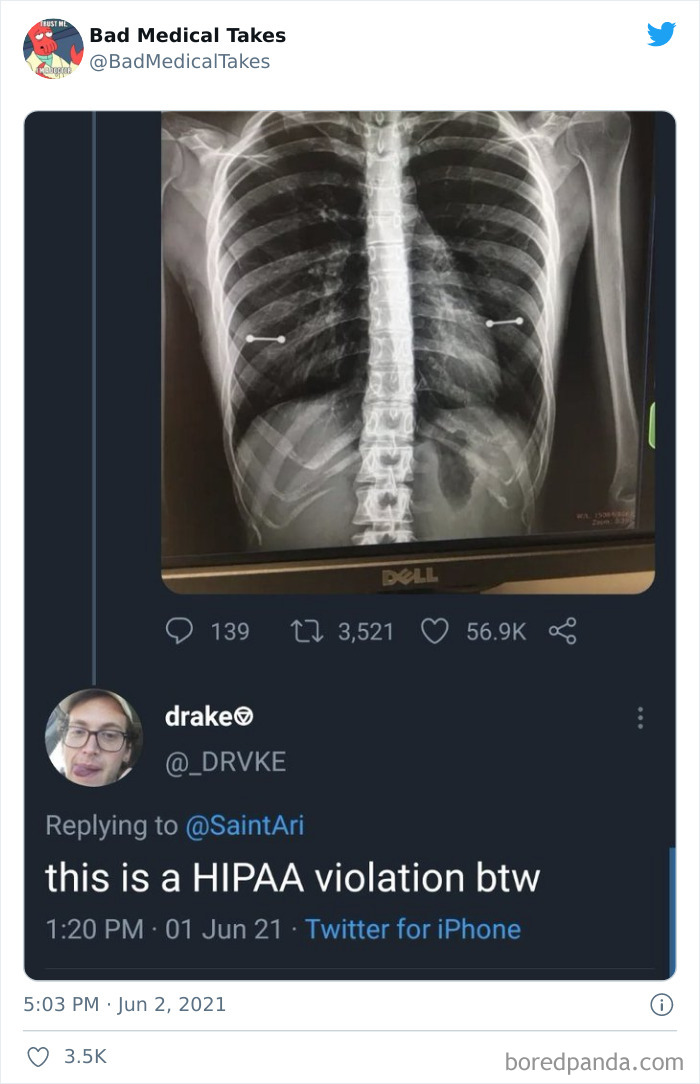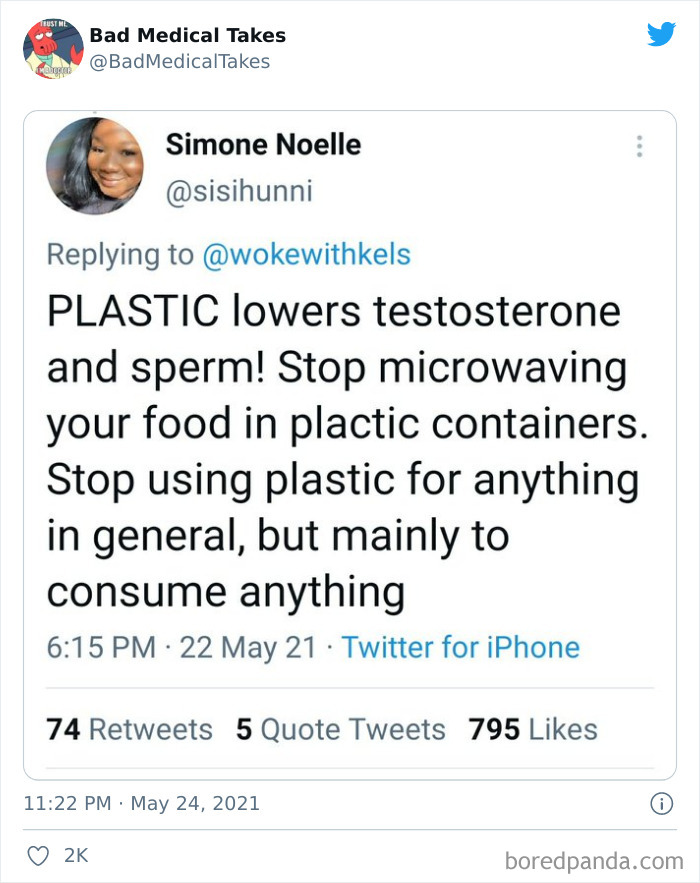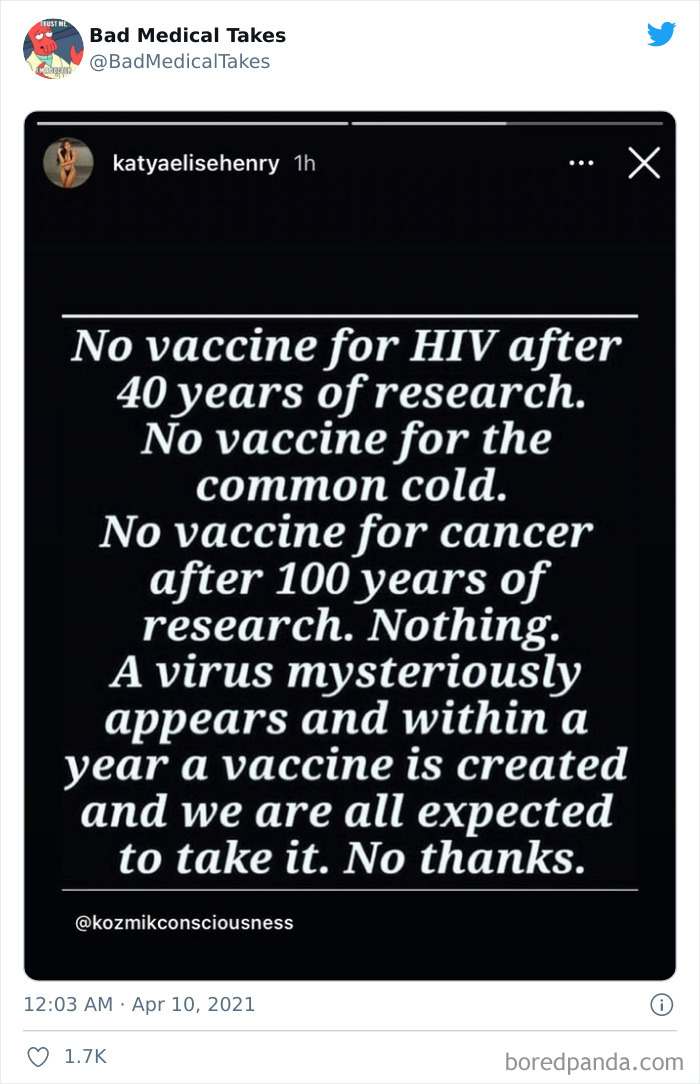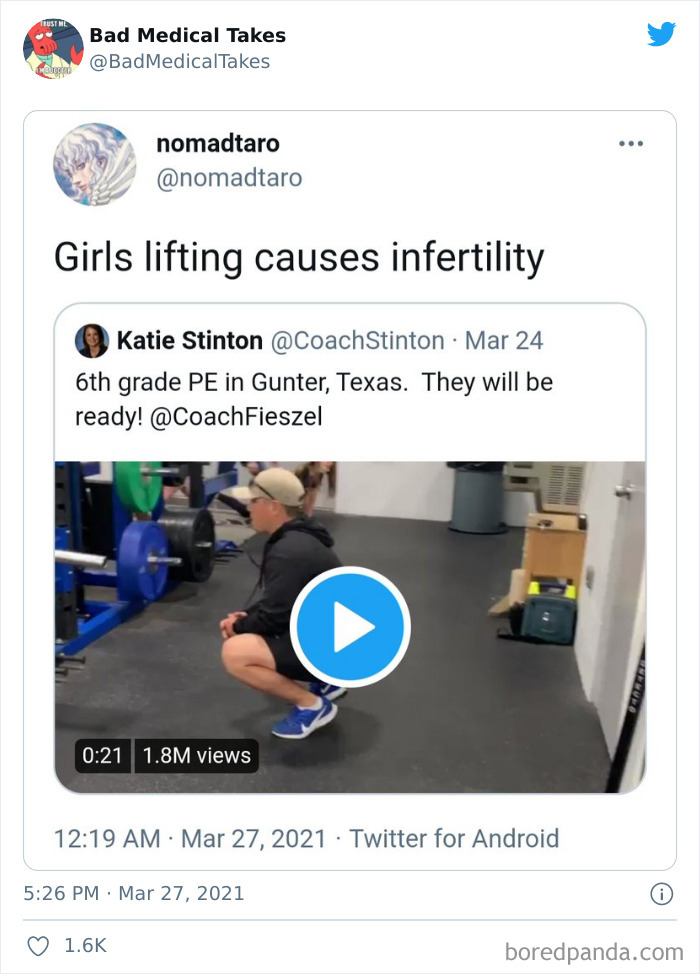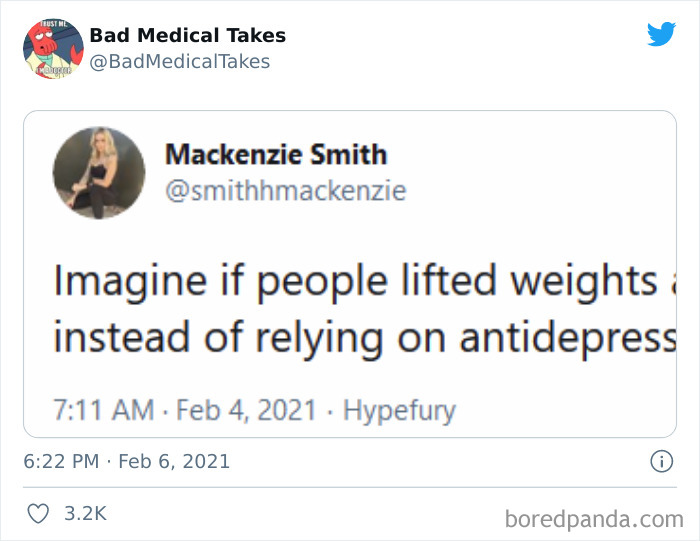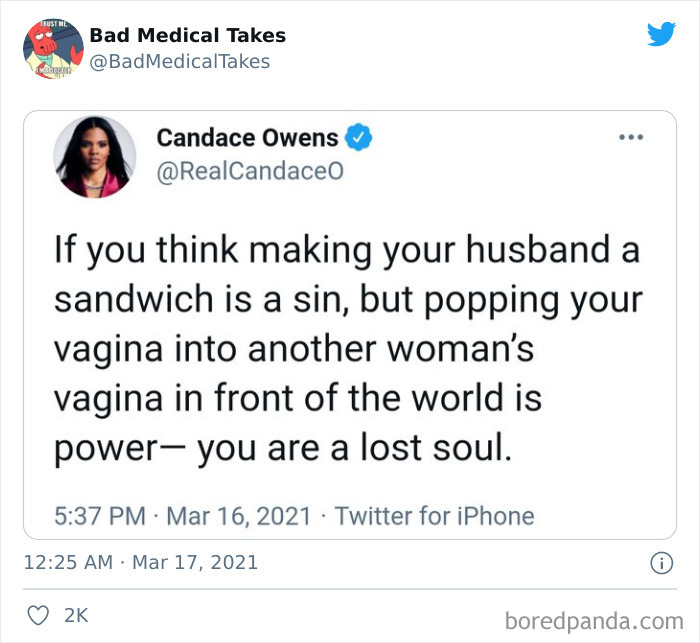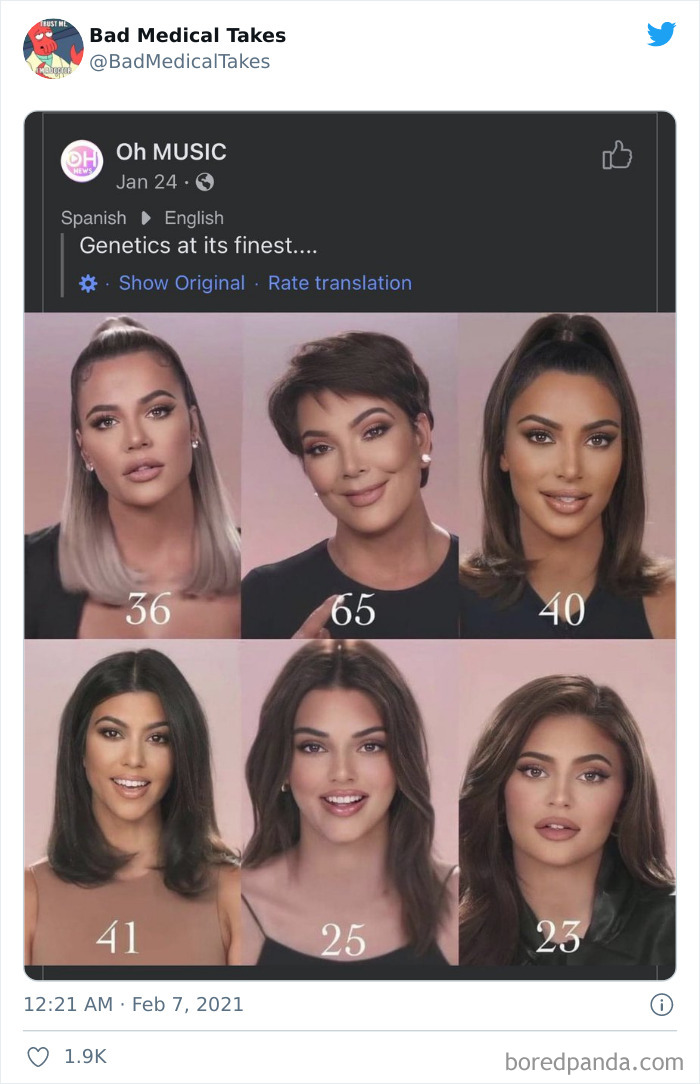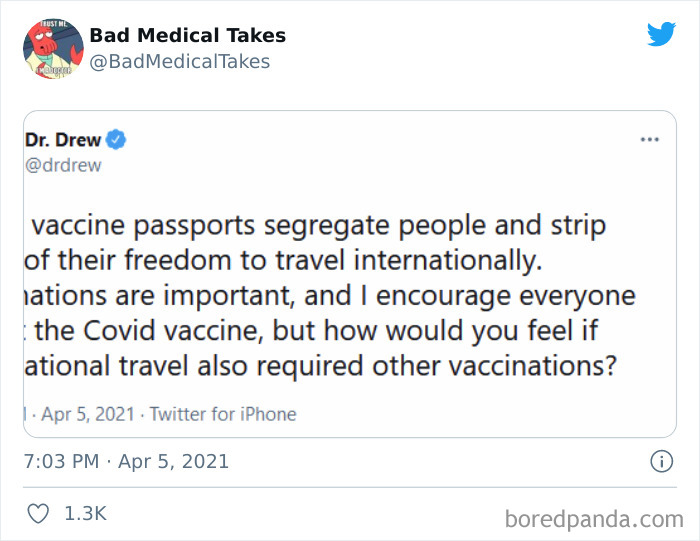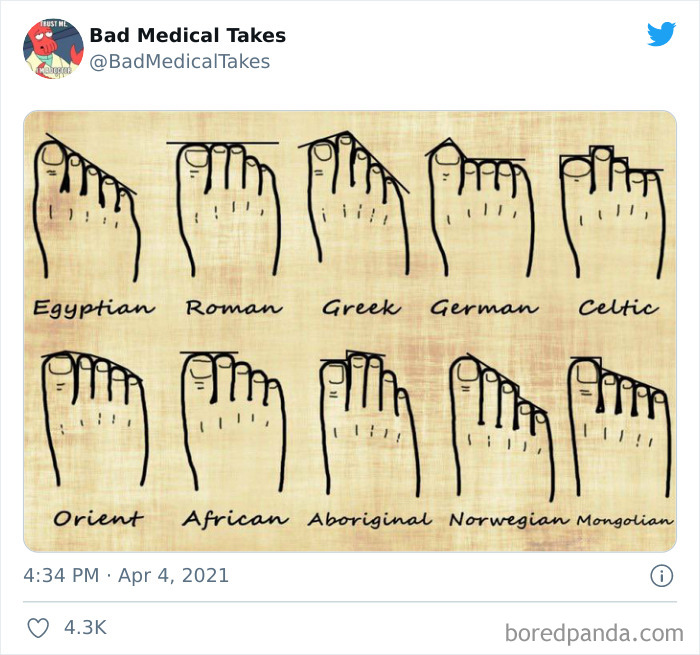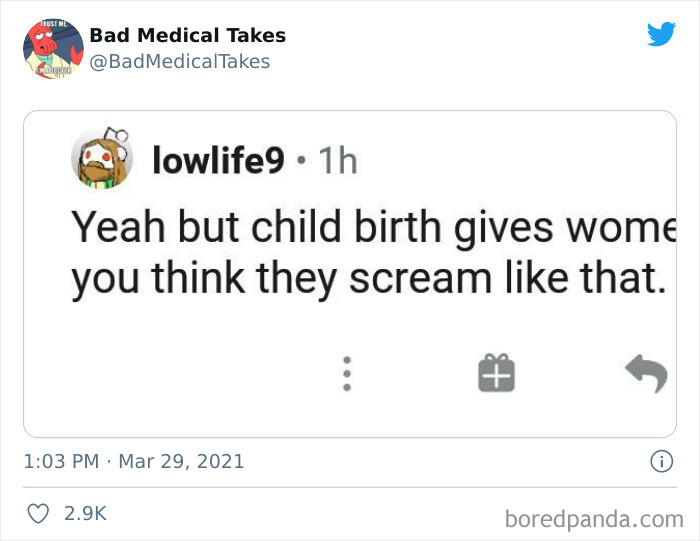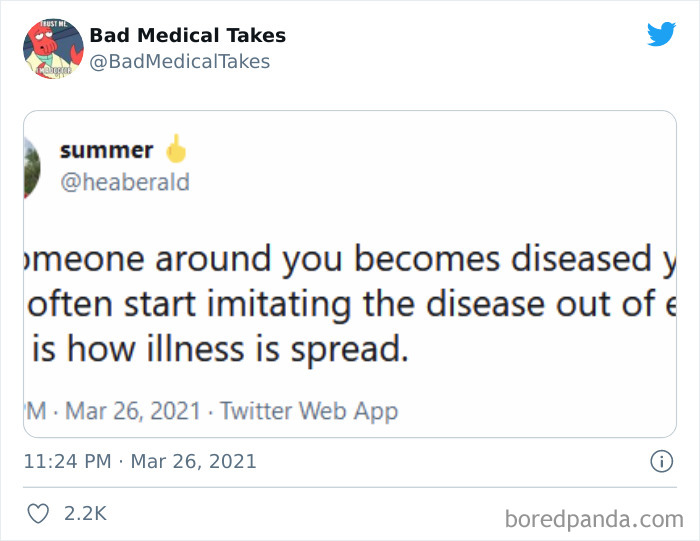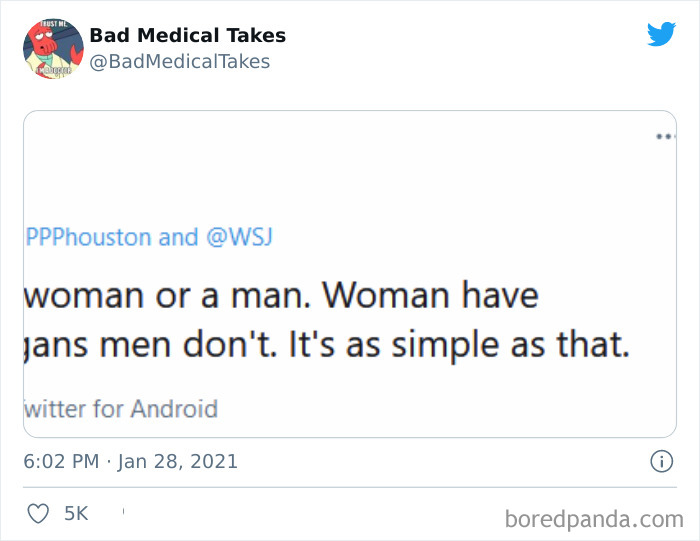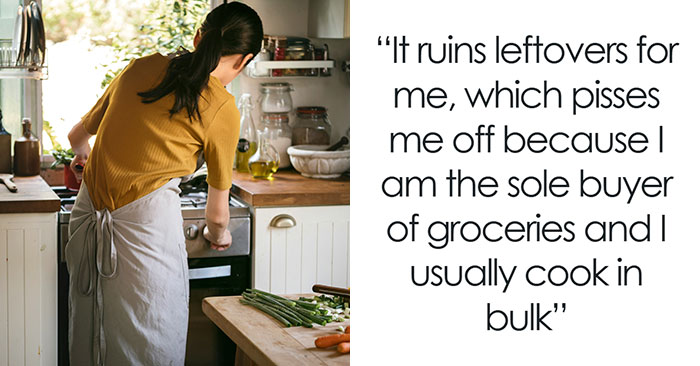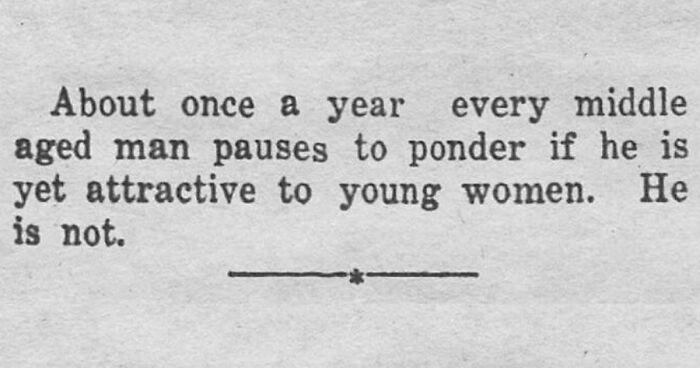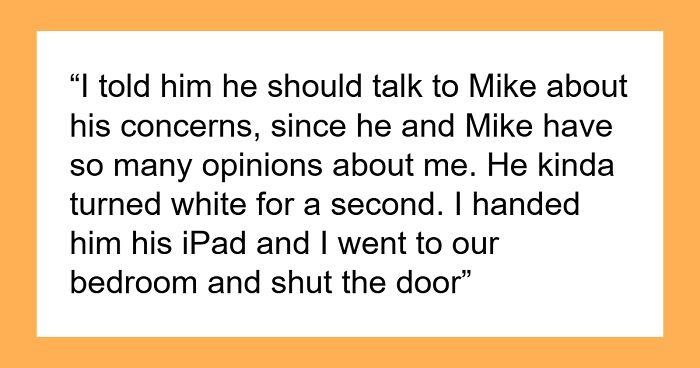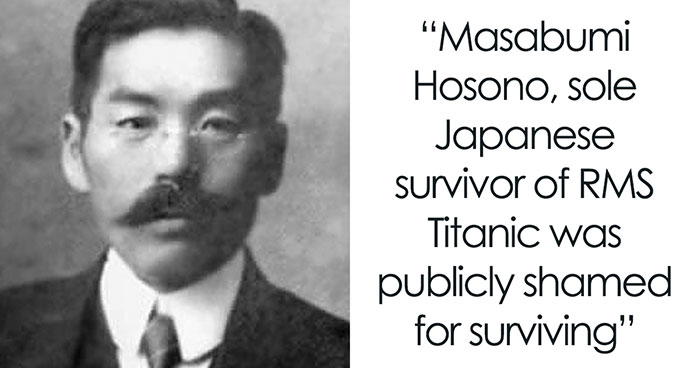Traveling medicine shows and questionable or even harmful "medical remedies" may seem like a thing of the past, but there's plenty of its 21st-century iterations.
While MLM marketers are not promoting tonics of cocaine or opium, they are trying to convince people that essential oils will cure cancer.
Obvious pyramid-scheme nonsense aside, plenty of people on social media for some reason think of themselves as doctors and spread ignorance to whoever will listen. Just don't let all that BS seep into your brain. Instead, try to laugh at their ignorance; it can be quite funny!
Just scroll through the Twitter account Bad Medical Takes. It shares user-submitted screenshots of some of the most ridiculous misconceptions "online health professionals" have to offer. Here are some of them!
This post may include affiliate links.
General practitioner, medical researcher, and founder of PrimeHealth Clinical Research, Iris Gorfinkel, M.D., told Bored Panda that social media and the Internet are not a one-size-fits-all. "On the one hand, it improves patient education and can improve public health. It brings people together who are in very wide apart places, so it overcomes geographical barriers... It's a tremendous educational tool for patients," Gorfinkel said.
Yes, it promotes awareness and encourages patient engagement, and it can provide quality information. But at the same time, people are searching online for the next big thing. "So what is more likely to be shared?", the doctor asked metaphorically. What is novel, she immediately answered. Or what is unusual.
Gorfinkel also pointed out a study done in 2018, published in Science by three MIT scholars, which found that falsehoods are 70% more likely to be retweeted on Twitter than truth. It also discovered that it took the truth about six times as long as falsehood to reach 1,500 people. This proves that falsehoods are simply alluring.
But even if many of us know not to trust what uncle Bobby is saying about vaccines on his Facebook page (I hope), reading a scientific paper can be really challenging and time-consuming. "I think there are some websites that are fairly trusted," Gorfinkel said. "Medscape, for example, tries to bring information to people in their own language. It's not perfect, but it is available in German, Portuguese, Spanish, and French. Then there's WebMD, MedlinePlus, Drugs.com. There's a whole bunch of these websites that are actually quite good."
For the so-called orphan conditions — diseases that are so rare, there isn't enough resources on them — Gorfinkel suggested Orpha.net.
At least it was a polite way to inform you of their stupid. Makes it easier to avoid them.
If you are still concerned about the validity of a certain piece, you will probably have to inspect it yourself.
What is to stop any doctor or professor from writing an opinion piece? Nothing, but this is where peer reviews come into play. "That's where other doctors and professors who have nothing to gain from what's published, look at the paper and say, 'Yes, this is actually true.' So look for things that are peer-reviewed, look for at least an editorial board. Again, that's a safeguard to prevent any one person's opinion from becoming a fact because peer reviews and editorial boards keep doctors in line in terms of making sure that what is said is accurate," Gorfinkel explained.
The sources that Gorfinkel mentioned earlier, like WebMD, publish some research studies that require huge funding. So looking at the funding source matters too — is there a conflict of interest?
It is such a pity because it is a technically very accomplished tattoo.
Of course, when a particular paper was written is important as well because, as Gorfinkel highlighted, what may have been relevant, say for COVID-19, even in 2020 is, for the most part, not relevant at all in 2021.
Generally, when you notice medical information online, it's probably best to approach it with caution. "If there is a promise of a miracle cure, that should ring alarm bells big time," Gorfinkel said. "A lot of complex problems, including depression, anxiety, hair loss, acne; a lot of these problems are actually complicated, and they don't have one single solution. This is especially true when things promise very quick answers, and often at a price."
It's always a good idea to run these ideas by either your family doctor or a pharmacist before investing in them.
Doctor Gorfinkel also added a very important piece of information: the United States and Canada do not monitor natural products. "Whether or not it's made in trusted countries, understand that they generally will fall under a separate category that does not have to fulfill the requirements of standard drugs."
This can become a problem because there's really nothing to stop natura-ceuticals and that includes the entire vitamin industry and the mineral industry. "There is no one to police what's in that stuff. And for the most part, there's no one there to pull it off the shelves," Gorfinkel explained.
"Moreover, these products tend to be some of the highest profit margin products available in stores. Often, they're placed right next to the normal pharmacy so that people can 'self-medicate.' But much of that has no evidence base whatsoever."
Because no one's watching, the potential for having these products adulterated with potentially toxic elements is very high. This is true for the probiotics industry as well as the prebiotics industry.
"I don't think people realize what's happening," Gorfinkel said. "There was a study done in the United States where they went into Walmart, and pulled off natura-ceuticals just off the shelf, and found that there was no correlation between what was on the label and what was actually in the bottle."
When experts checked probiotics in Toronto (this was the Department of Family Practice at the St. Michael's Hospital), they just took 12 random things off the shelf, gave them to the microbiology lab, and found the same: no correlation between what was promised to be in the bottle and what was actually in the bottle.
"So if there are promises that sound too good to be true, bottom line, they probably are," Gorfinkel said. And this sadly applies to more than just online medical takes.
Was this tweeted in 1860 or something? Cause, boy, have I got news for you, Andrea.
Do incels post everywhere, or is there just an alarming number of them?
wait until you find out that you can die from badly infected and untreated teeth
WT absolute F? I feel sorry for her daughters having such a hateful, uninformed mother. And poor Taylor Swift, not that I think she would have seen this, but it reminds me of Ellen trying to shame her about her rumoured relationships, and wouldn’t take no for an answer.
It's an unpopular opinion because most people have a post dark ages level of education.
The fact that women don't go into shock during natural childbirth pretty much blows his theory out of the water.
Personally I would take a woman with a big brain over big boobs any day. Nothing sexier than a real conversation
A certain amount of diabetes is caused by poor diet or develops as a result of other chronic conditions, but "sorting out their issues" is not possible for people with Type I diabetes. Their pancreas just quit working out of the blue as a child, not as a result of too many donuts.
Why is there raw chicken on a plate with scrambled eggs? Who eats raw chicken?!?
I'm going to empathize with the original poster, not the crazy coconut oil person. For a long time my mom and doctors thought I had ADHD but none of the medications worked for me. It wasn't until college that I was diagnosed with Aspergers. When I was a child it was believed that Aspergers and Austism were male exclusive disorders. It was even a struggle to get a diagnosis of ADHD back then. A lot of girls were hurt in this assumption.
Well, he's not wrong technically. He just forget to mention it's estimated the spanish flu killed around 5% of the global population at the time (1918). And for the black plague, the estimated number of death is around 25 millions in Europe, or between 30 and 50% ! of the population at the time (14th century)
Men and women get breast reduction all the time. They can't because they're trans? You suck
Gee, they haven't been researching covid for years before this particular strain went global. But I'll bet this same person will eat candy without reading (or caring) what's in it.
*hands over yees* Make the stupid stop make the stupid stop make the stupid stop
These are the names of the foot shapes, not the nationalities of the people who have them.
It's an art piece with someone saying they like it... what is wrong with that
I try to see it like a zoo... a zoo and I'm a visiting alien. The slight separation encourages a sense of amusement rather than despair
Load More Replies...There is just too much stupid in this post to read it without feeling physical pain. These people then go and have kids. This right here is one of the main reasons why every person/couple who wants kids should get a licence that they are in fact mentally and economically and intellectually capable of raising a child.
I try to see it like a zoo... a zoo and I'm a visiting alien. The slight separation encourages a sense of amusement rather than despair
Load More Replies...There is just too much stupid in this post to read it without feeling physical pain. These people then go and have kids. This right here is one of the main reasons why every person/couple who wants kids should get a licence that they are in fact mentally and economically and intellectually capable of raising a child.

 Dark Mode
Dark Mode 

 No fees, cancel anytime
No fees, cancel anytime 






